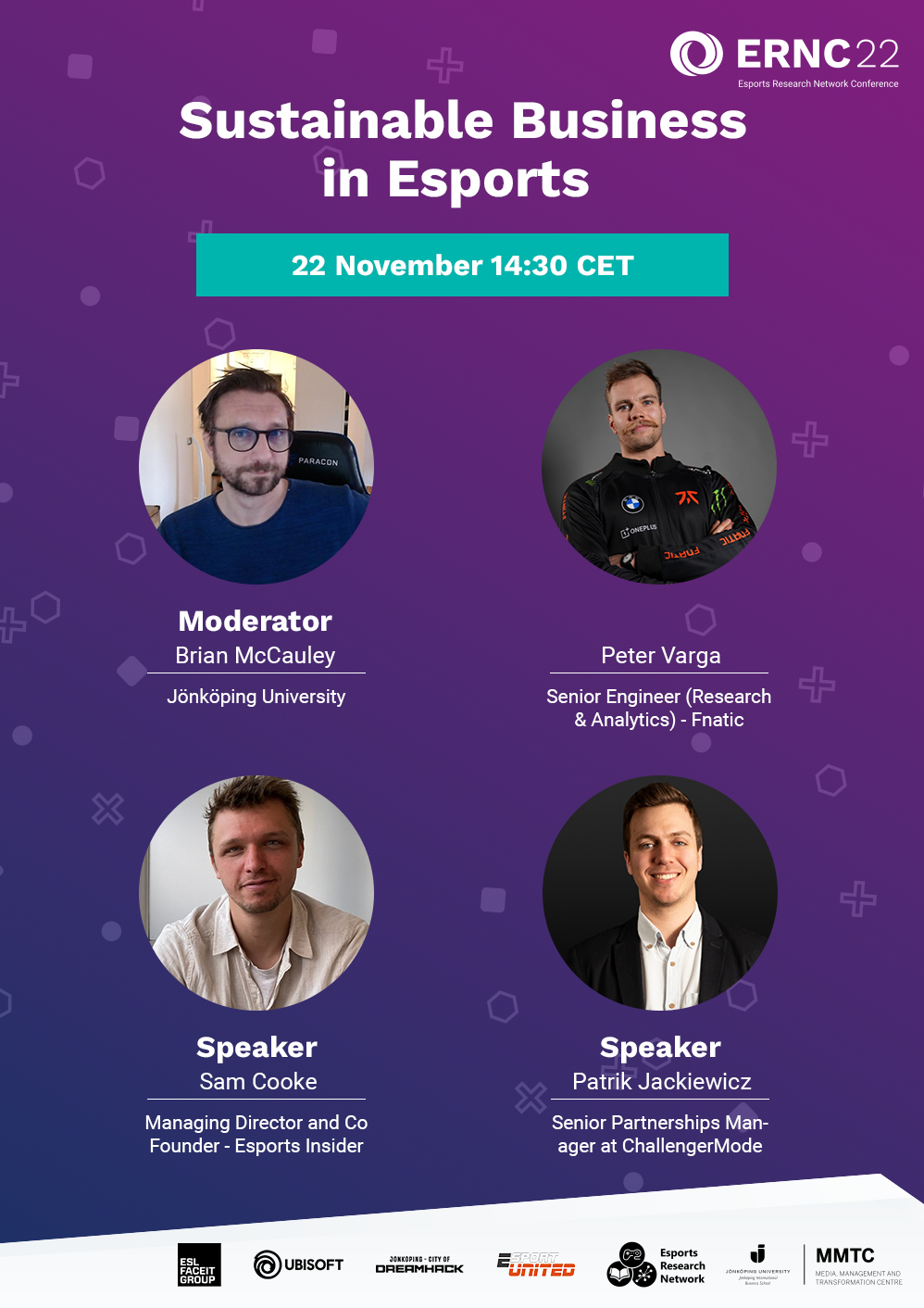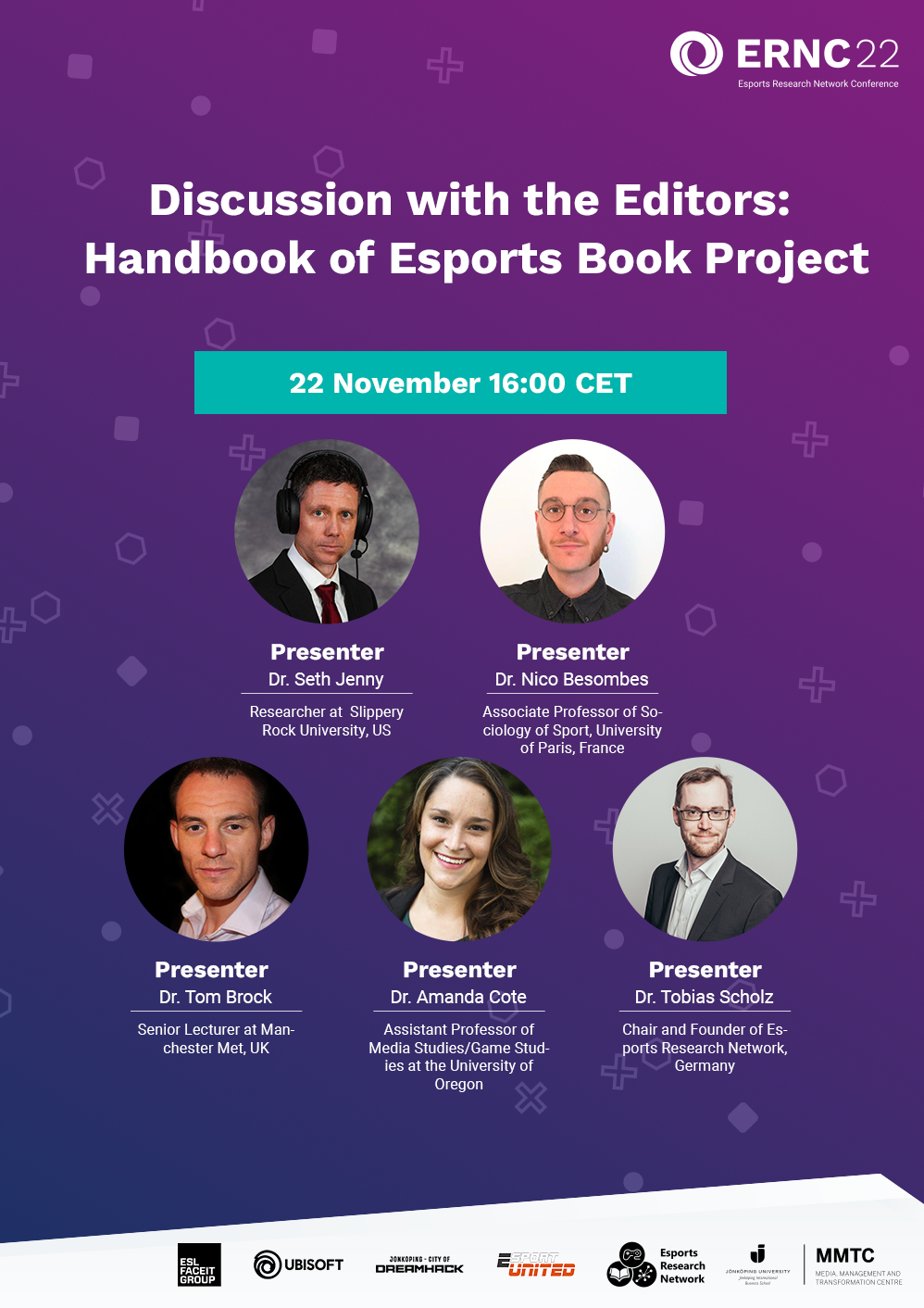
“Sustainable Esports in the Digital Society”
International In-Person Conference presented by the Media, Management & Transformation Centre at Jönköping International Business School in Sweden
Follow the conference on twitch!
ERN Conference 2022 “Sustainable Esports in the Digital Society”
International In-Person Conference presented by the Media, Management & Transformation Centre at Jönköping International Business School in Sweden
Follow the conference on twitch!
Our sponsors




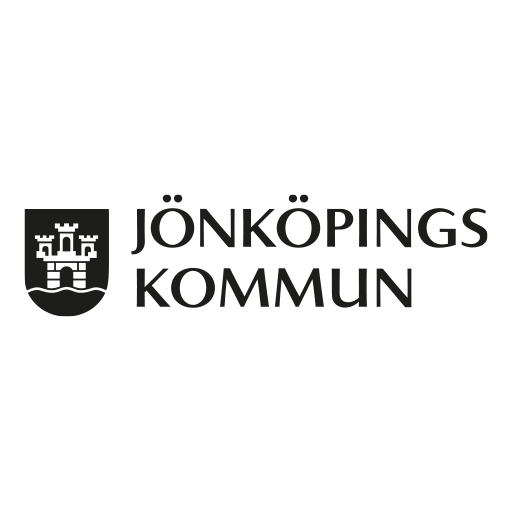

Our sponsors






Speakers
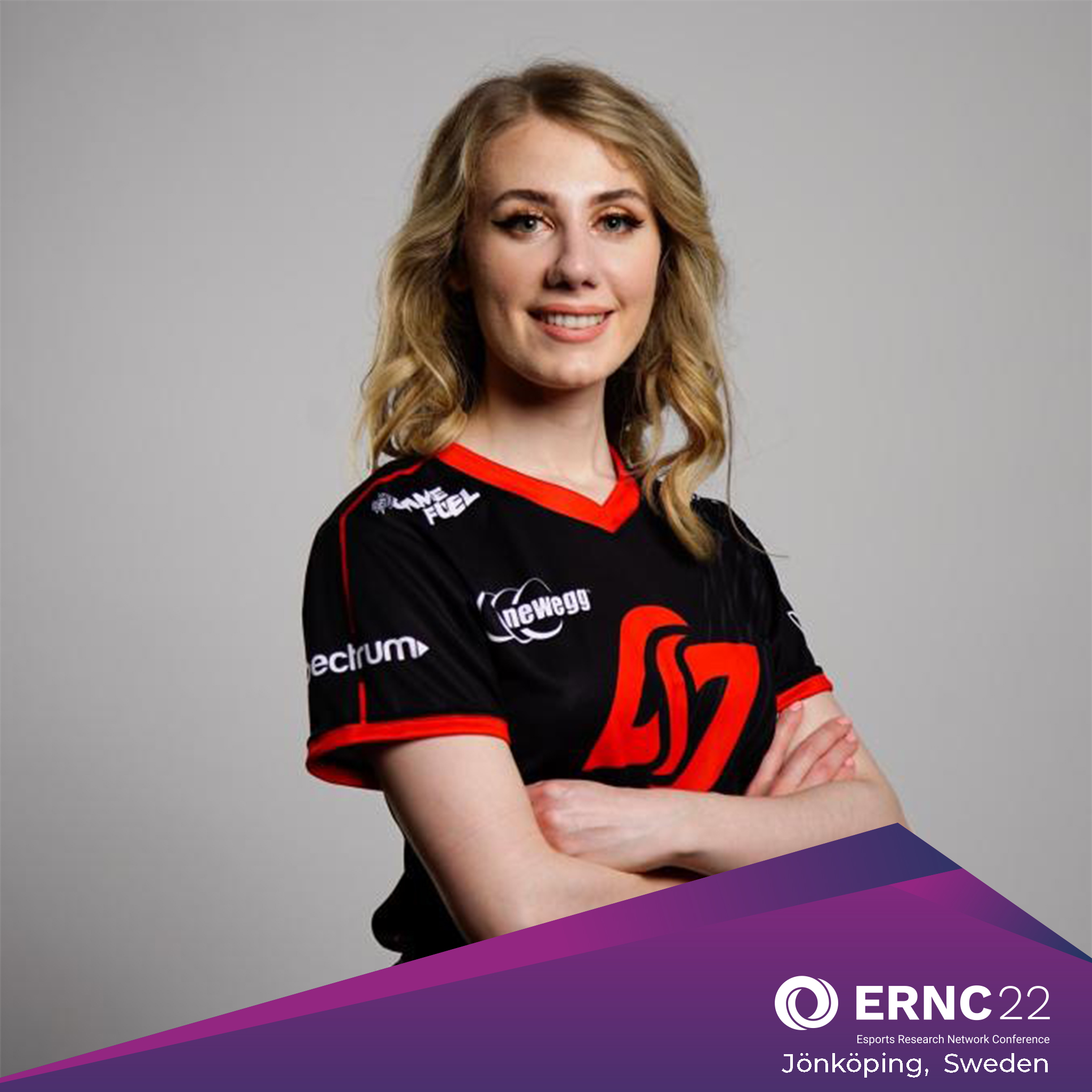
Mounira Dobie
Counter Logic Gaming Red
As a professional CS:GO player on the all female team CLG Red, Mounira is playing her role in making esports a place for everyone. She will be taking time away from bootcamping in preparation for competing at DreamHack Winter to join the GGFORALL Panel at ERNC22.
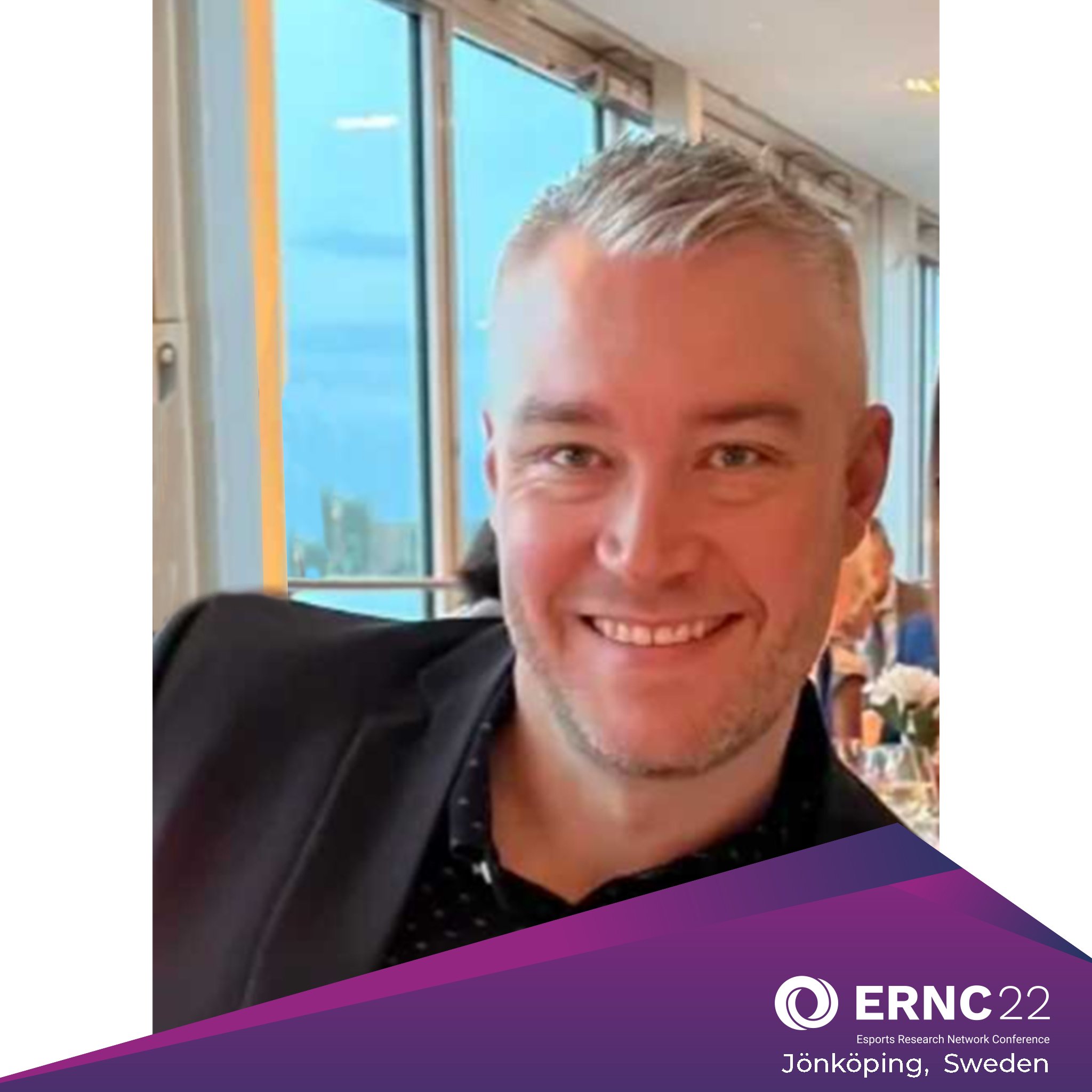
Andreas Jernberg
Managing Director for EFG Stockholm & DreamHack AB
Andreas has extensive experience in sales, marketing and branding within the games and esports industry. He leverages this experience to ensure that the world’s biggest digital festival, DreamHack, delivers optimal value to the gamers and esports enthusiasts that make up this vibrant community.
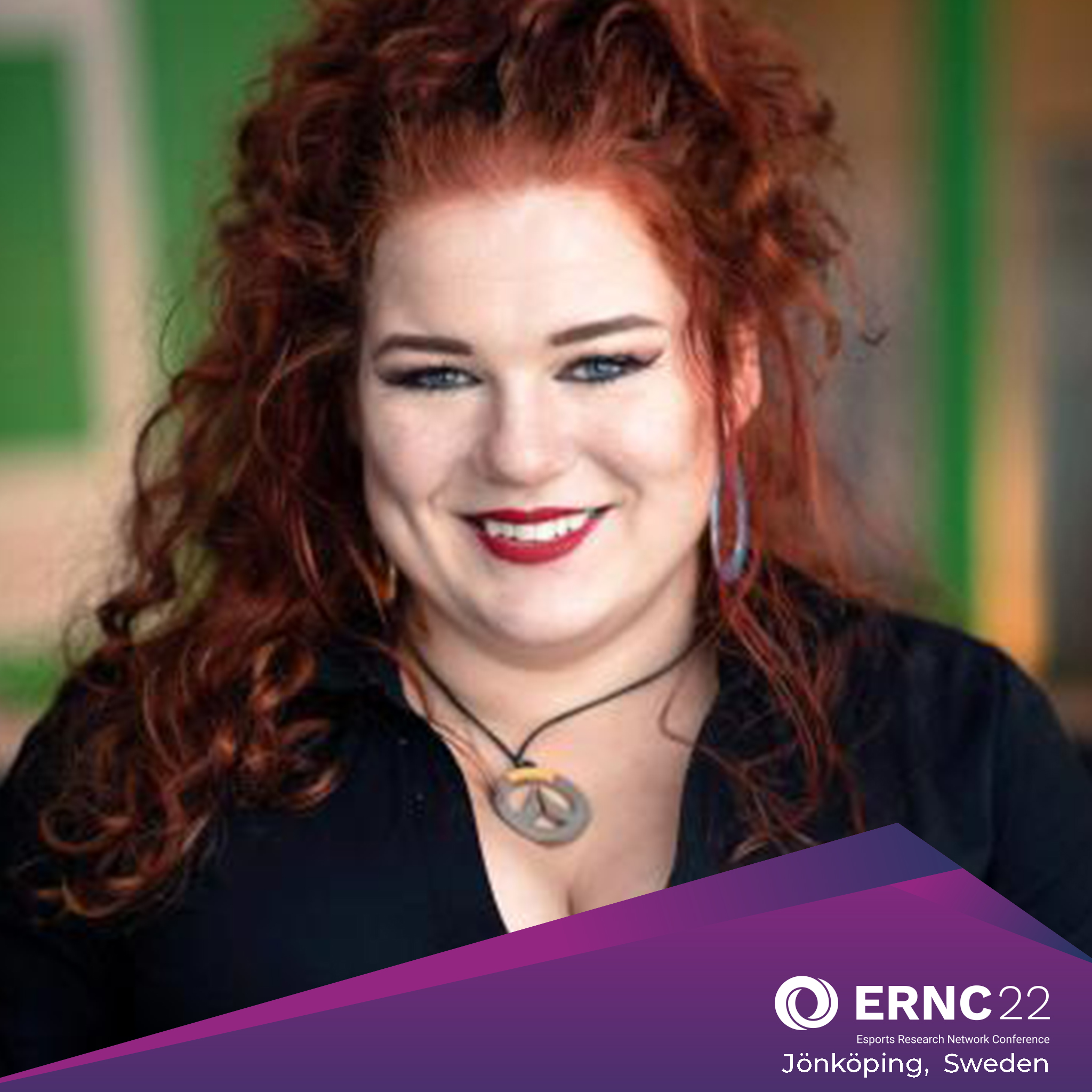
Lillie Kelfelt
Project Manager #GGFORALL – ESL Faceit Group
Lillie has been engaged in making gaming and esports a better space in Sweden since founding Female Legends over six years ago. She now applies that experience as project manager for the #GGFORALL project, managing new initiatives designed to tackle discrimination, promote mental wellbeing and progress environmental sustainability in esports.
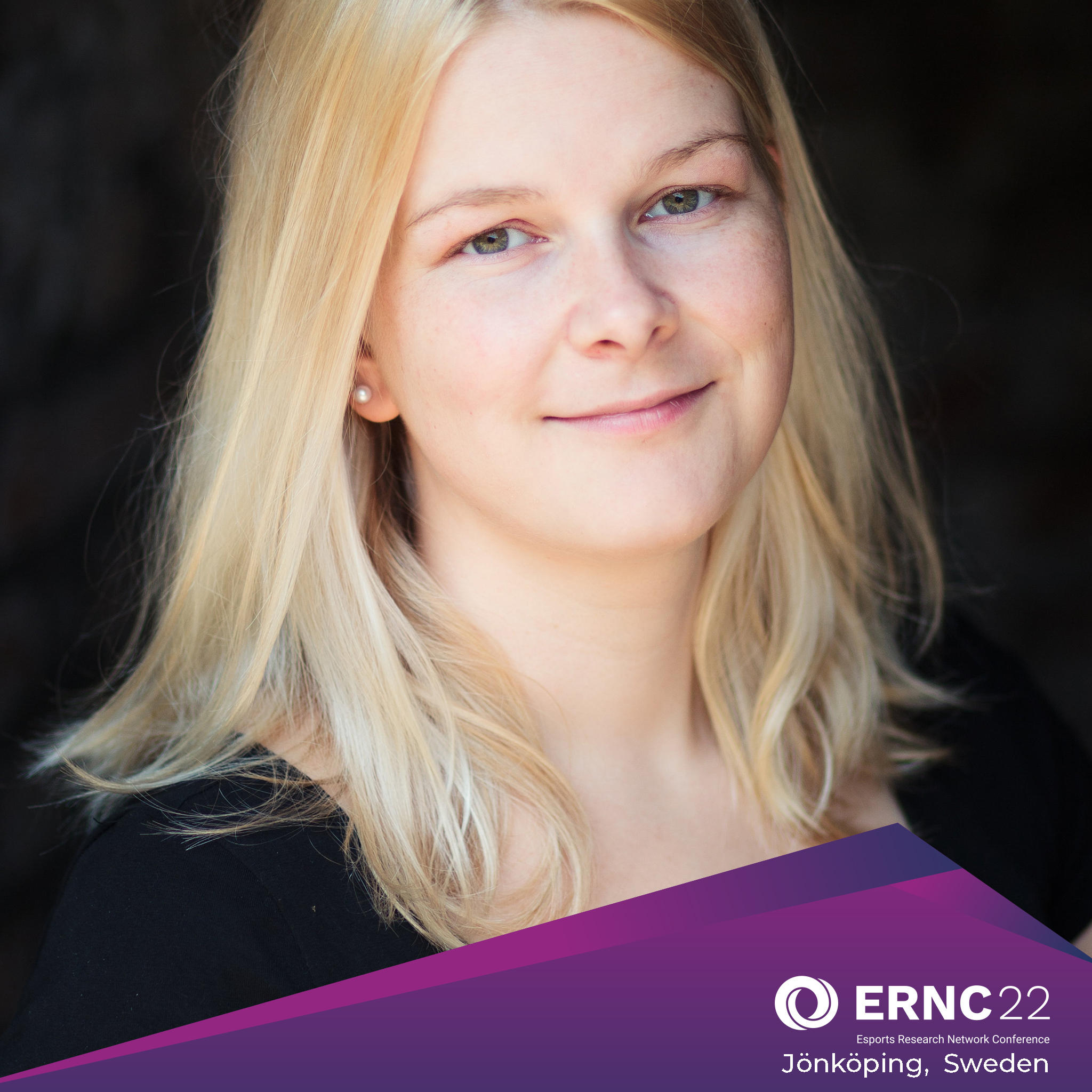
Dr. Julia Hiltscher
Director Corporate Responsibilty – ESL Faceit Group (EFG)
As a former professional gamer, scientist and CSR professional, Julia is proud to be to be working every day towards a world in which everybody can be somebody through the GGFORALL intitiative by in the world’s biggest esports company.
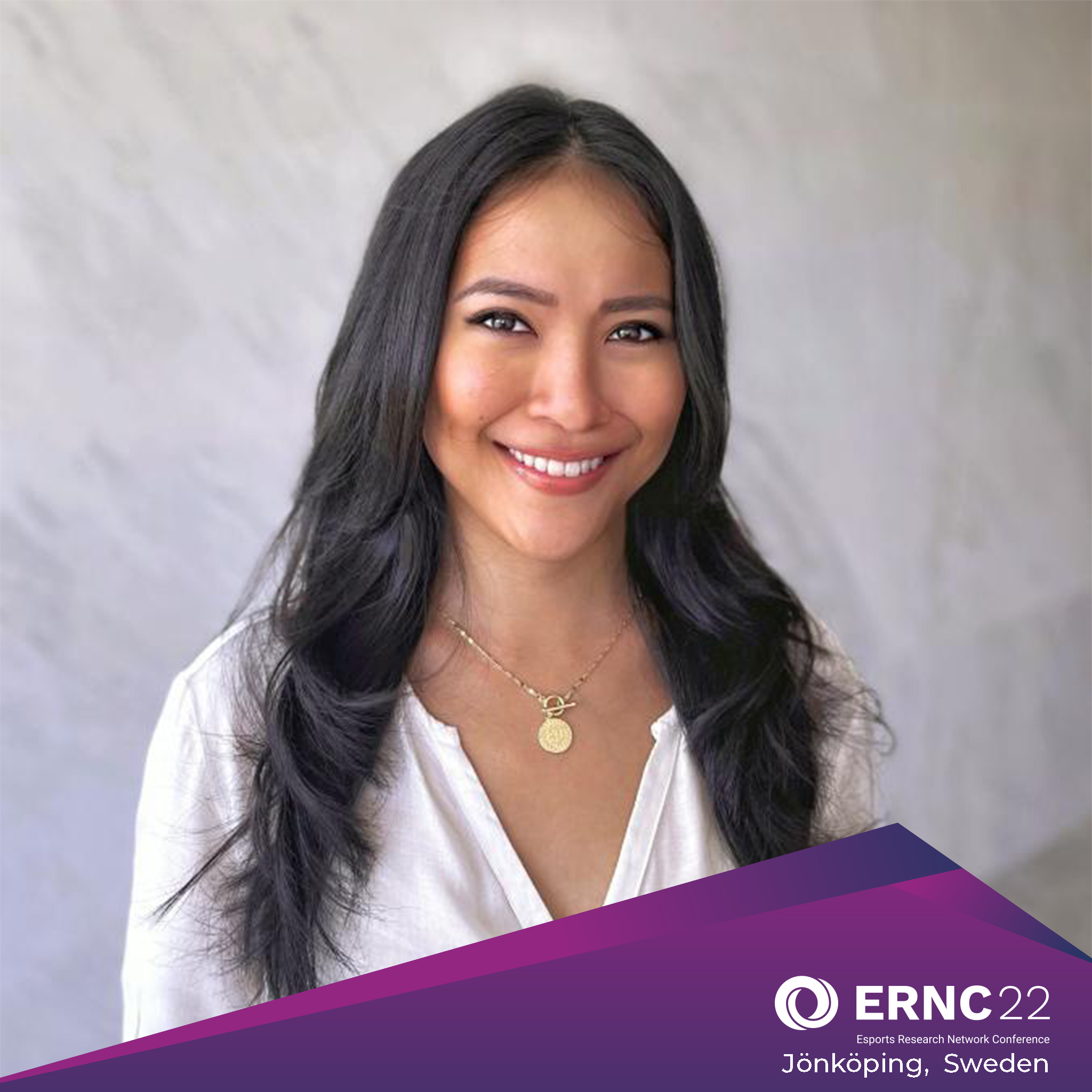
Jazzy Tan
Regional Talent Acquisition – ESL Faceit Group (EFG)
Jazzy is proud to serve as lead regional APJ (ANZ, SEA, Japan) recruiter for global esports leader, ESL FACEIT Group. She champions the regional talent strategy, human resource management, business partnering, university and graduate recruitment, talent acquisition and HR transformation within this organisation. EFG are the pioneers who lead the game in the esports Broadcast, Media & Entertainment scene.
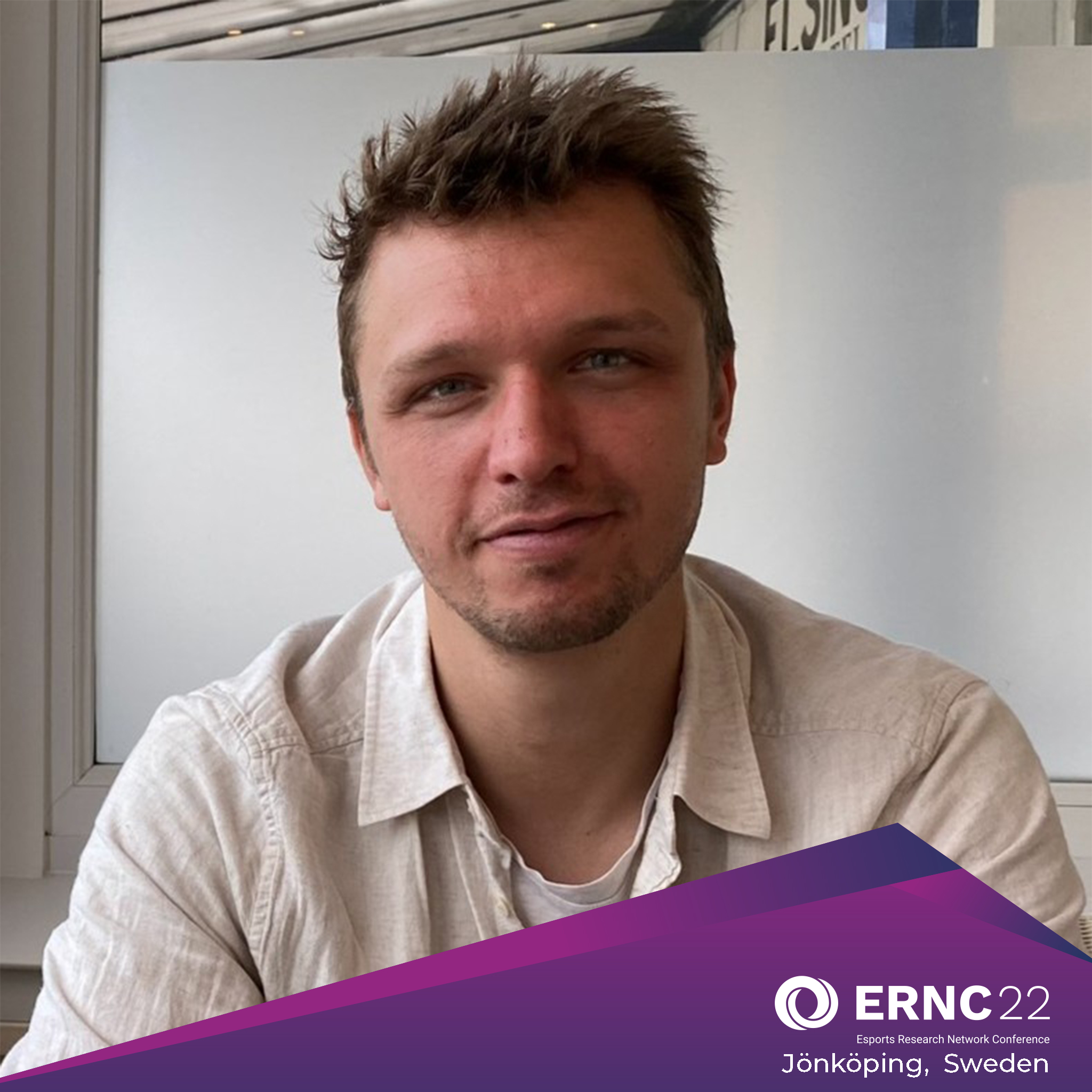
Sam Cooke
Managing Director and Co Founder – Esports Insider
Esports Insider exists to help drive the esports industry forward, in the right way, through media, events and connecting stakeholders. Sam’s experience at the centre of this has given him unique insights and knowledge that has allowed him to develop new ventures such as the Esports Journal and the WFH League.
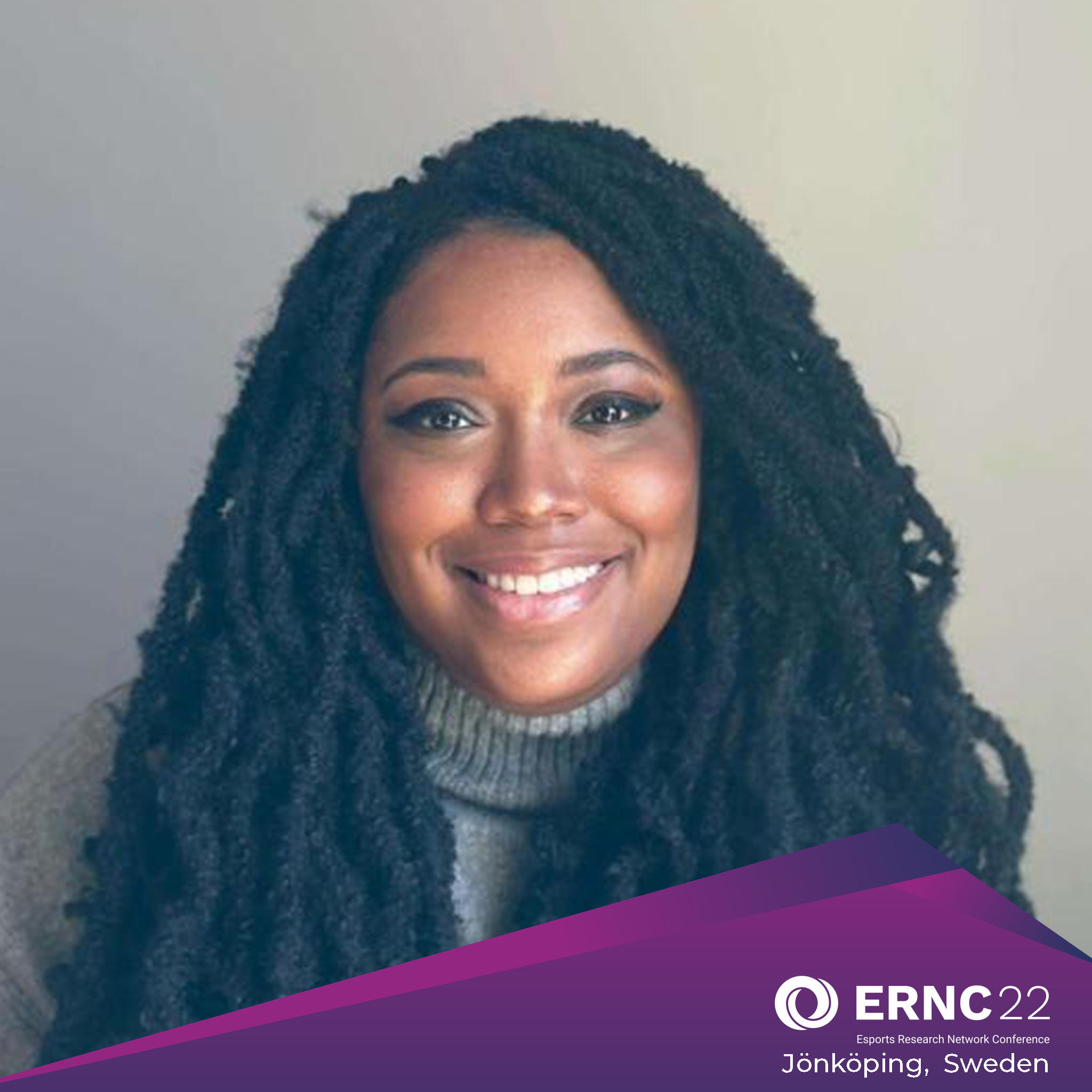
Ashley Washington
Esports Product Manager, Game Changers EMEA – Riot Games
Ashley is the product lead for Riot’s Game Changers initiative in EMEA, a program that provides exposure, educational and competitive opportunities for women in esports. She views herself as a professional culture buff, gamer, problem solver and dedicated advocate for fair treatment, equity & diversity in the gaming and esports industries.
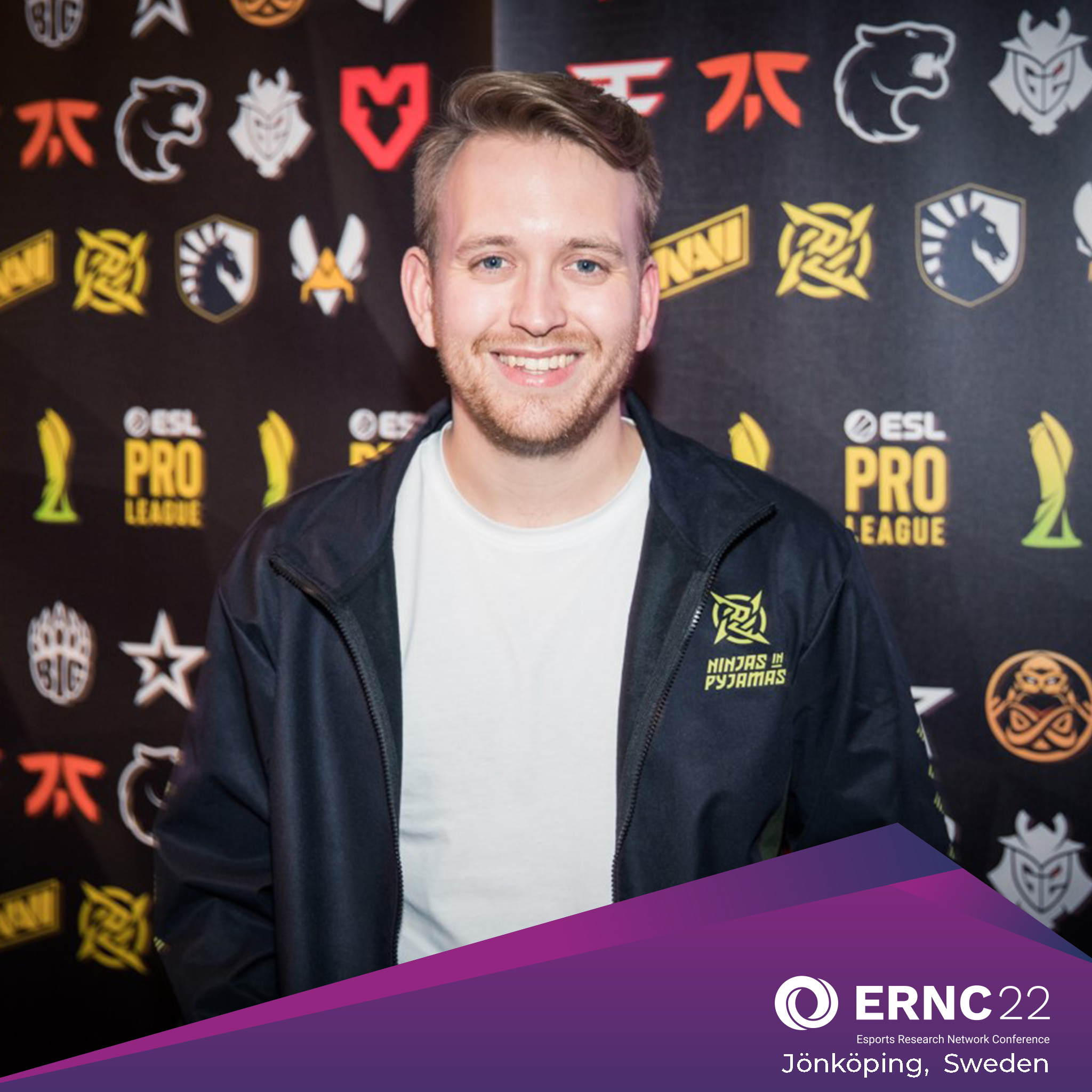
Erik Wendel
Director of Team Operations at Ninjas in Pyjamas
As Director of Team Operations at NIP, Erik is a core part of leading their global esports operation. Together with his talented colleagues, he’s tirelessly building the world’s most professional and modern esports and performance department in esport, being the home for over 30 world-class esport athletes.
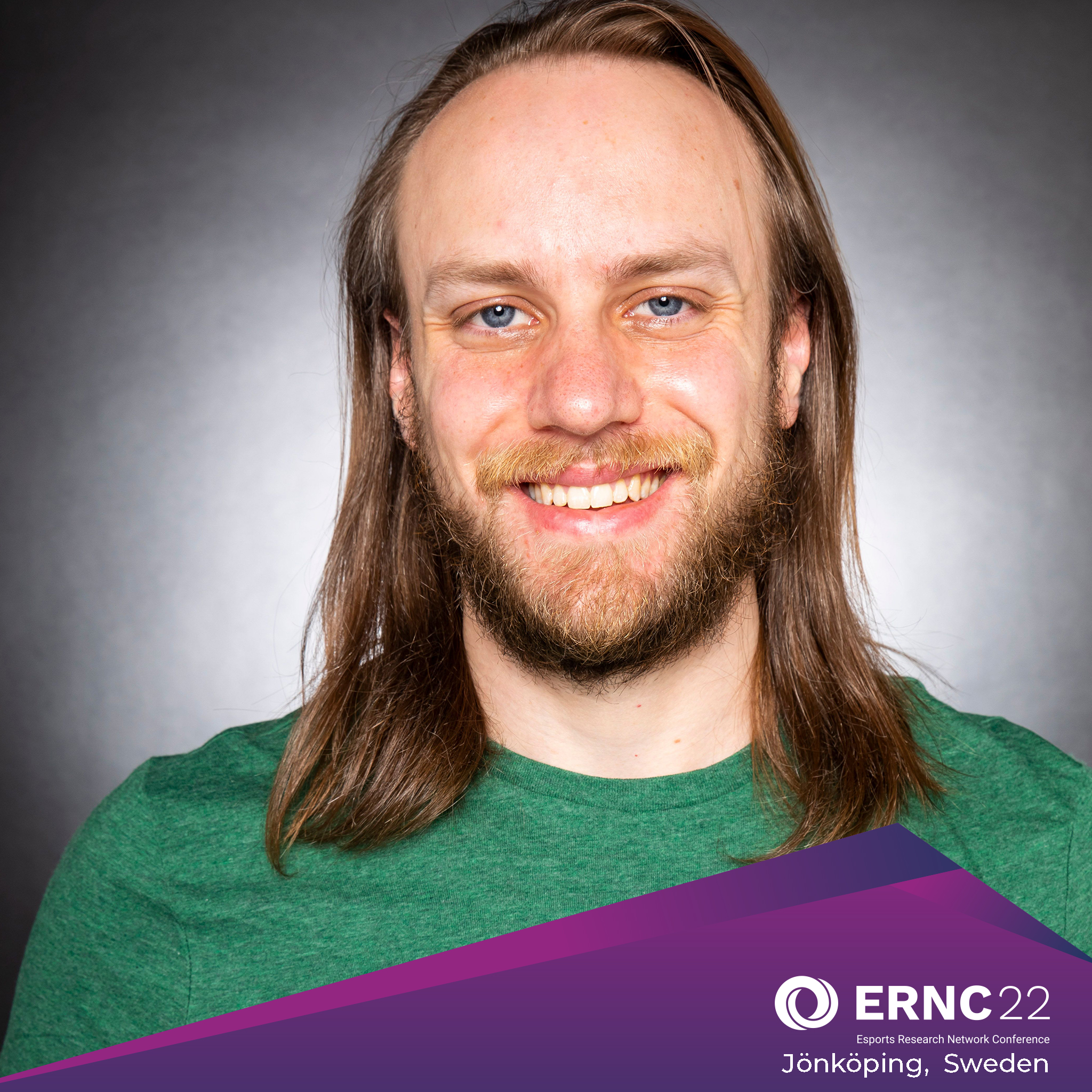
Graham Ashton
Esports External Affairs Manager, EMEA – Riot Games EMEA
Graham acts as Riot Games’ liaison and advisor for esports-related policy and regulatory matters in the EMEA region. This includes advancing relationships with governments and detailing how Riot’s competitions are run at the highest level. He is part of the Rules and Governance team within Riot’s Competitive Operations department, working from the publisher’s Berlin esports office.
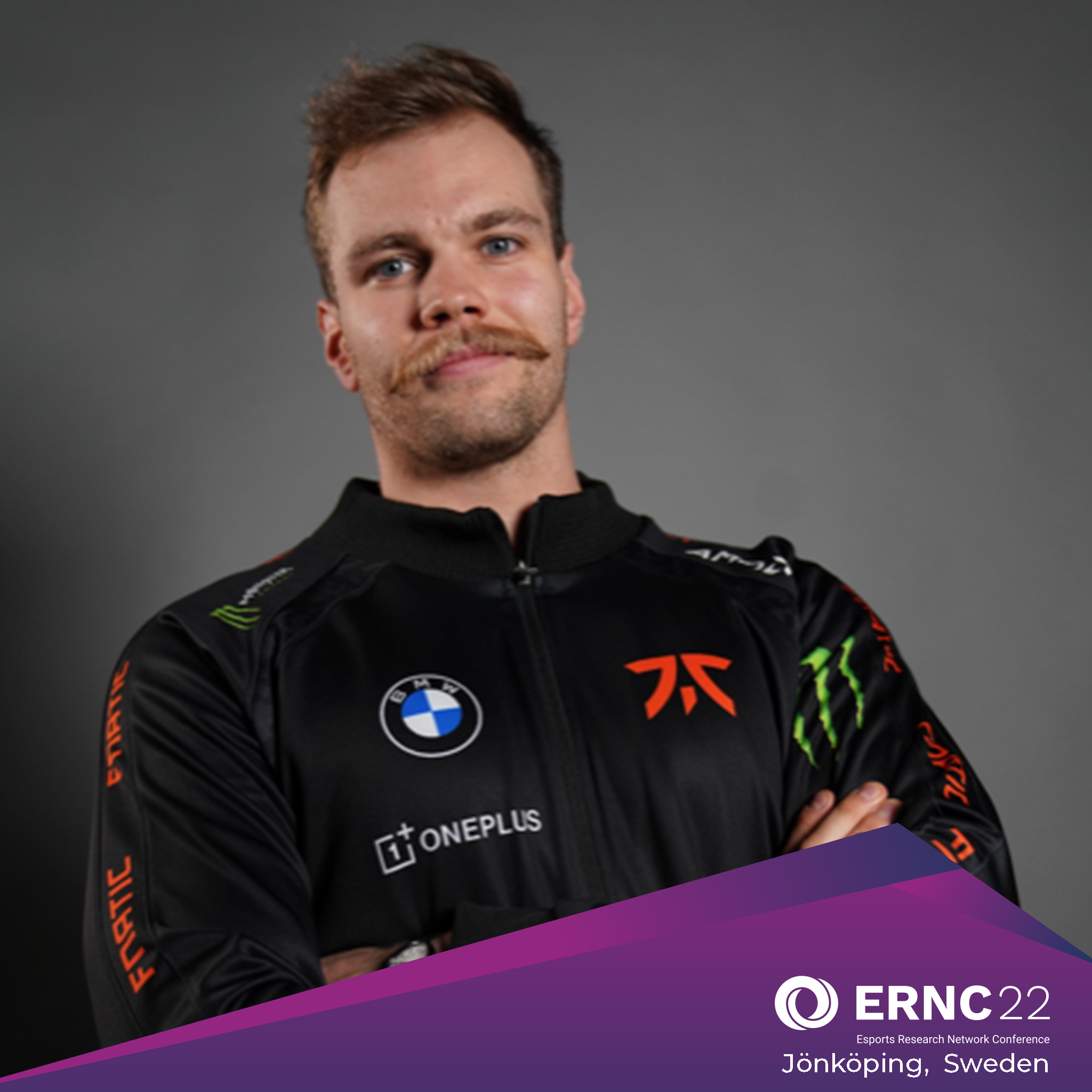
Peter Varga
Senior Engineer (Research & Analytics) – Fnatic
Peter is a data professional that comes from a science & research background. He combines these skills with with his passion for gaming to lead one of the world’s biggest esports brands in their approach to data and analytics.
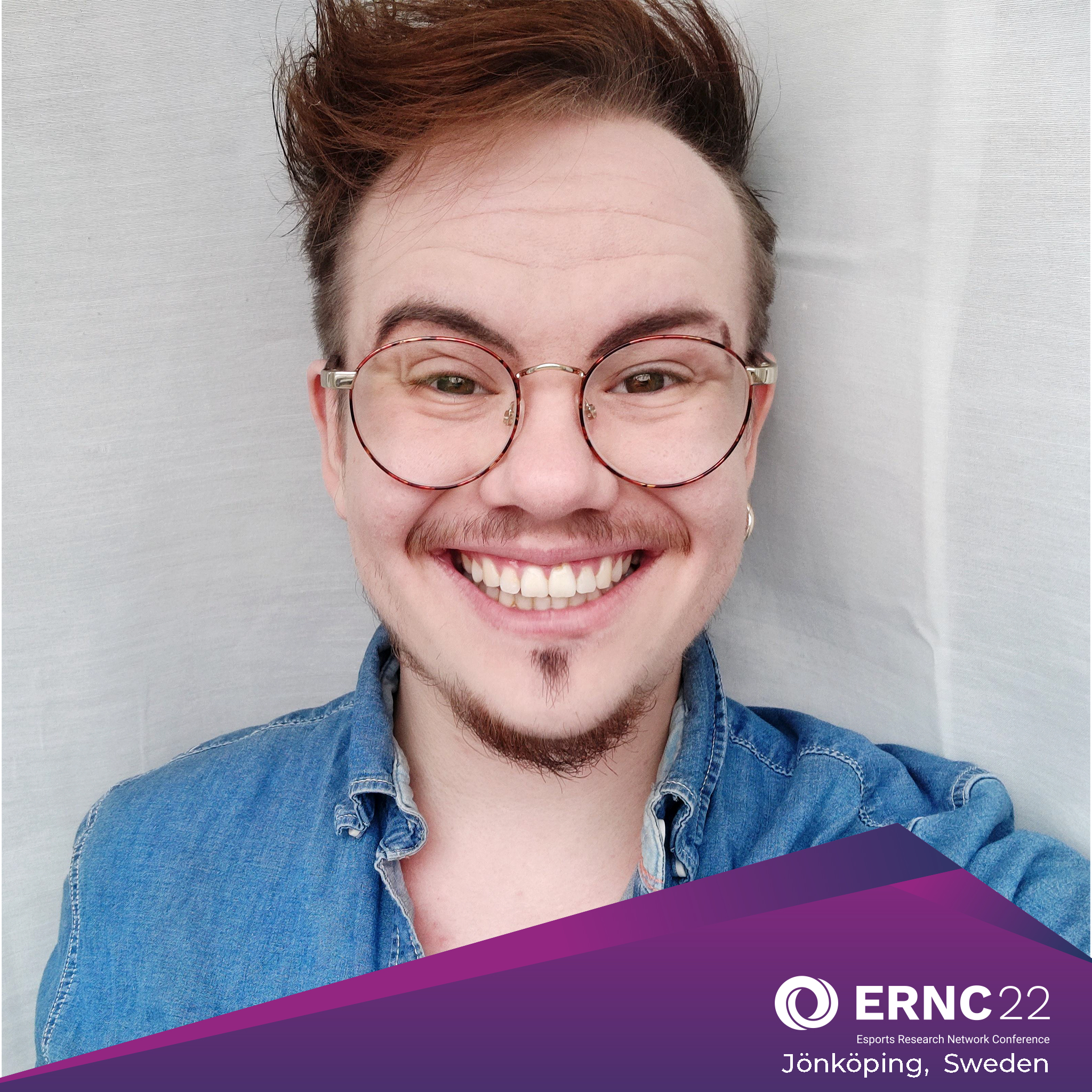
Gabriel Eriksson Sahlin
Lecturer plus Talent Acquisition and Diversity Manager – Kinda Brave
Gabriel is an openly queer transgender man and lecturer at universities, companies and states within LGBTQIA+, social psychology and more. He’s also the Talent Acquisition and Diversity manager at the game publisher Kinda Brave. He has a passion for making the industry more diverse and spreading education to make knowledge accessible to everyone who wants to listen and learn!
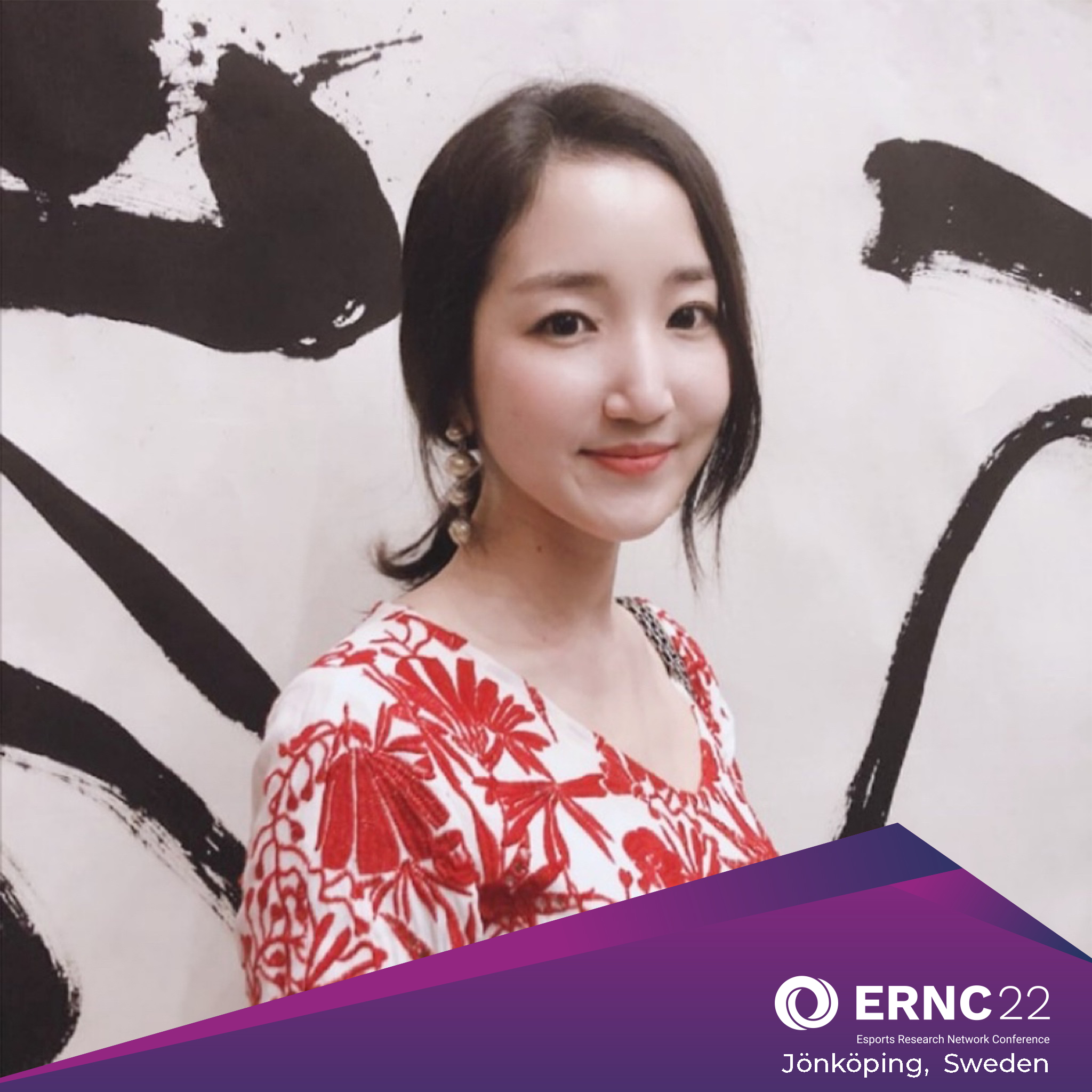
Dr. Yaewon Jin
Principal Researcher – The Game-n-Science Institute, South Korea
Yaewon Jin is interested in how to best understand post-digital society through gaming and esports. She is a principal researcher at TGSI(The Game-n-Science Institute), the first game research institute in South Korea, and a postdoc researcher at University of Jyväskylä. With her interdisciplinary interests and diverse work experience at companeies such as NcSoft and Riot, she hopes to contribute by bridging fields to construct a more holistic understanding of digital culture.
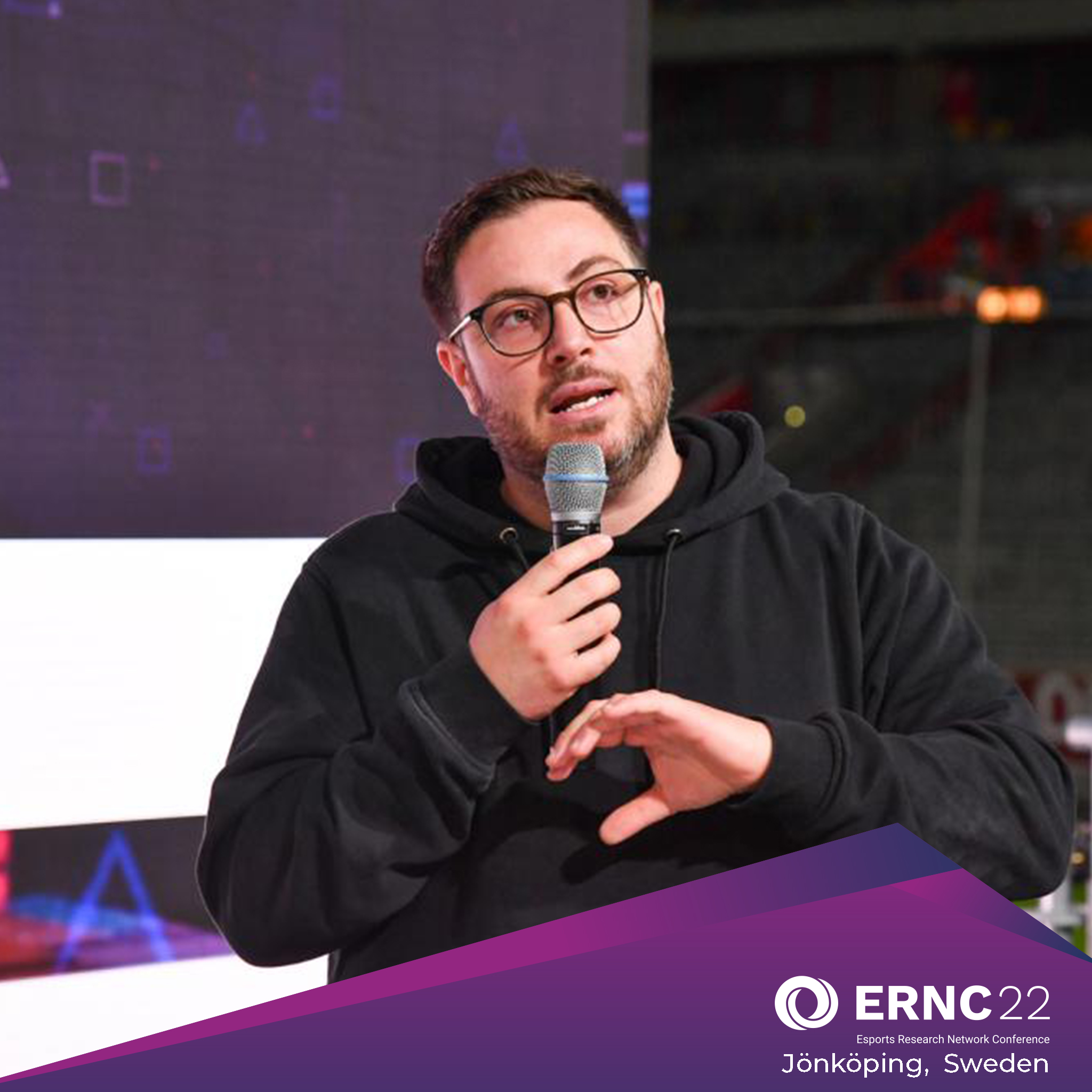
Gian Luca Vitale
Business Development Lead Metaverse, Gaming & Esports at PwC WPG GmbH
Gain Luca is passionate about and dedicated to esports & gaming as well as football and the art of excellent food. He is all about customer driven experience, marketing and brand strategy with the leading principle of good feelings and solutions to problems. He sees massive opportunites to advance the field of HR & recruitment through esports.
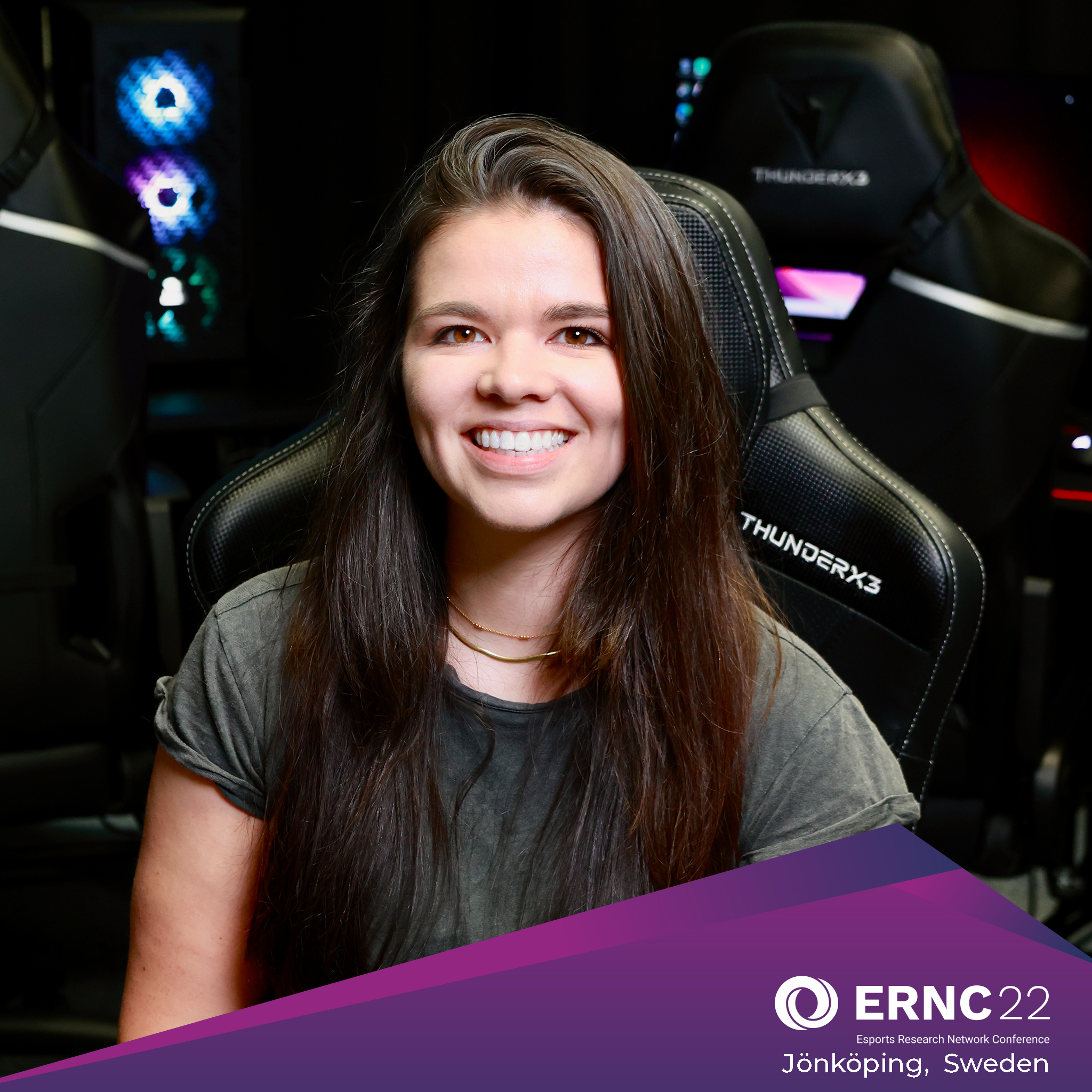
Dr. Laura Swettenham
International Federation of Esports Coaches
Apart from her role as Head of Research at IFoEC, Laura is a sport and exercise psychologist registered with The Health and Care Professions Council with experience working with athletes and coaches across a range of contexts. Currently, Laura spends her time working with professional athletes and teams in tennis and esports.
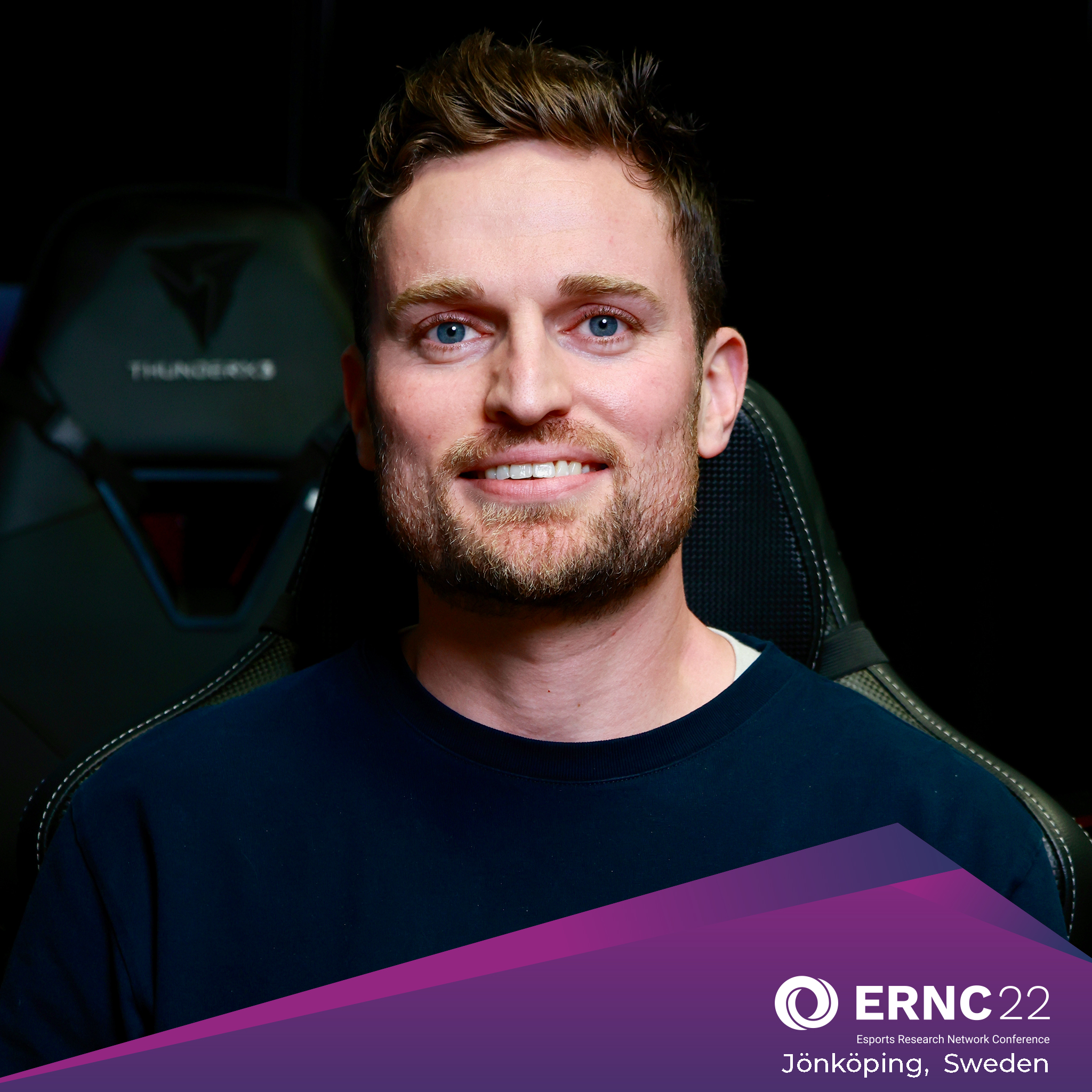
Matthew Watson
International Federation of Esports Coaches
Matthew Watson is the Director of Learning & Development at IFoEC. He is dedicated to supporting coaches and team staff in esports and beyond. He appreciates being able to work with–and learn from–coaches across a range of games, competitive levels and career stages.
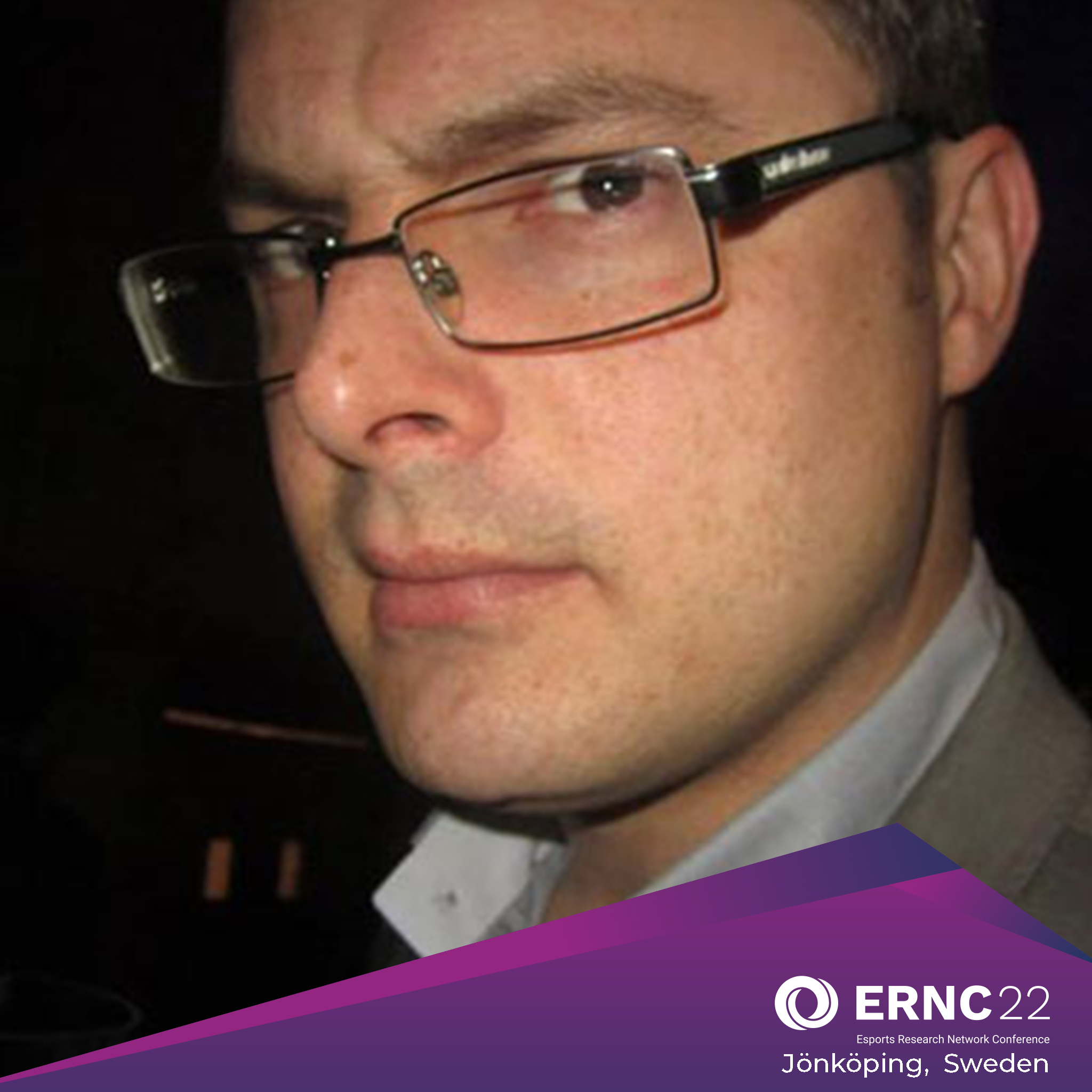
Dr. Joseph Macey
Researcher at Centre of Excellence in Game Culture, University of Turku
Joe is a founding member of the ERN and has published extensively in leading journals on the topic of esports. His primary focus is the examination of relationships between the consumption of contemporary digital games and participation in newly-emergent gambling activities. HE has been among the first international researchers to publish empirical, peer-reviewed works investigating loot boxes and virtual items known as “skins”.
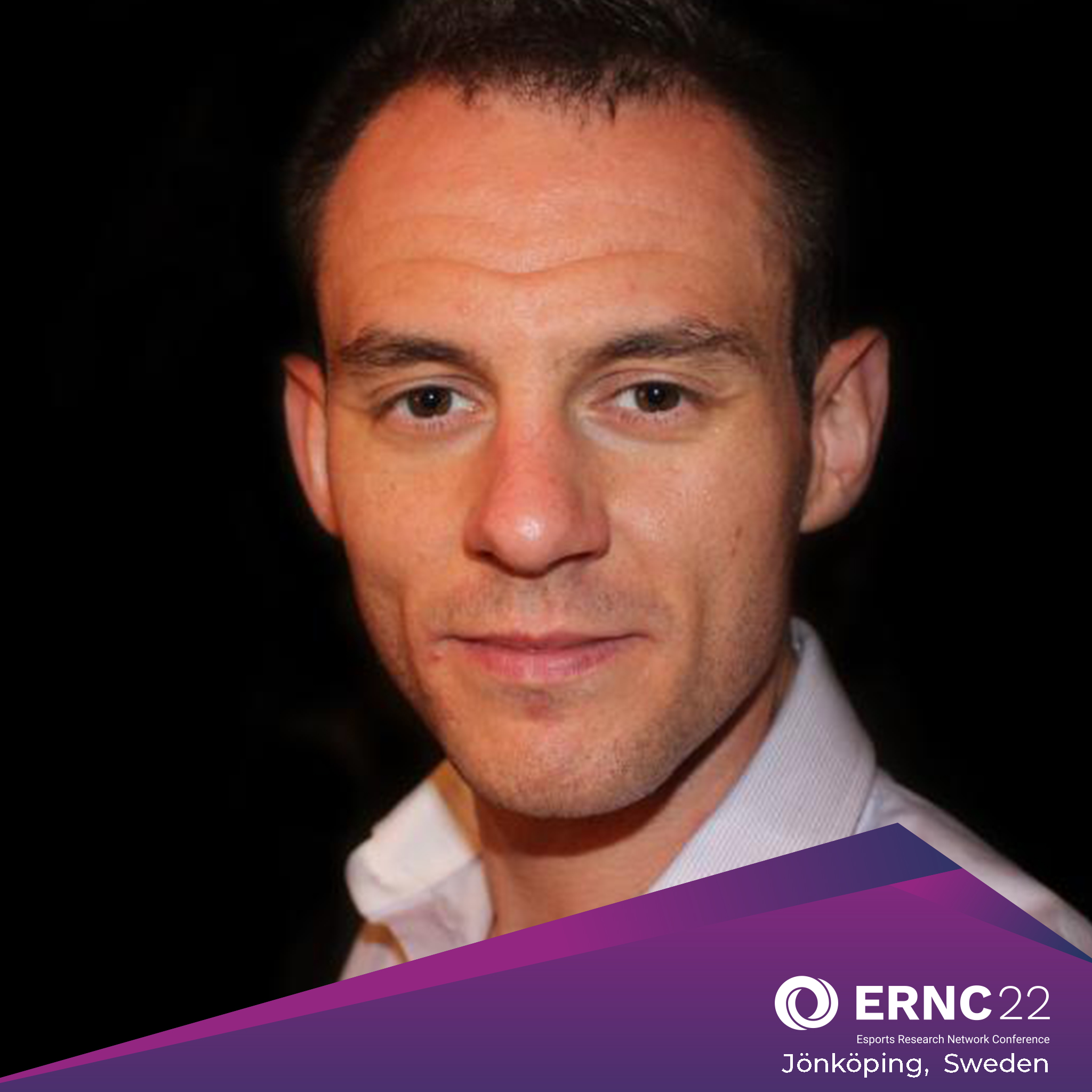
Dr. Tom Brock
Senior Lecturer at
Manchester Met, UK
Based in the Department of Sociology, Tom’s research interests include play, games and social theory. He has authored publications on esports, player skill, failure, player labour and digital games consumption in peer-reviewed journals including, Games and Culture, Journal of Consumer Culture, and Information, Communication and Society.
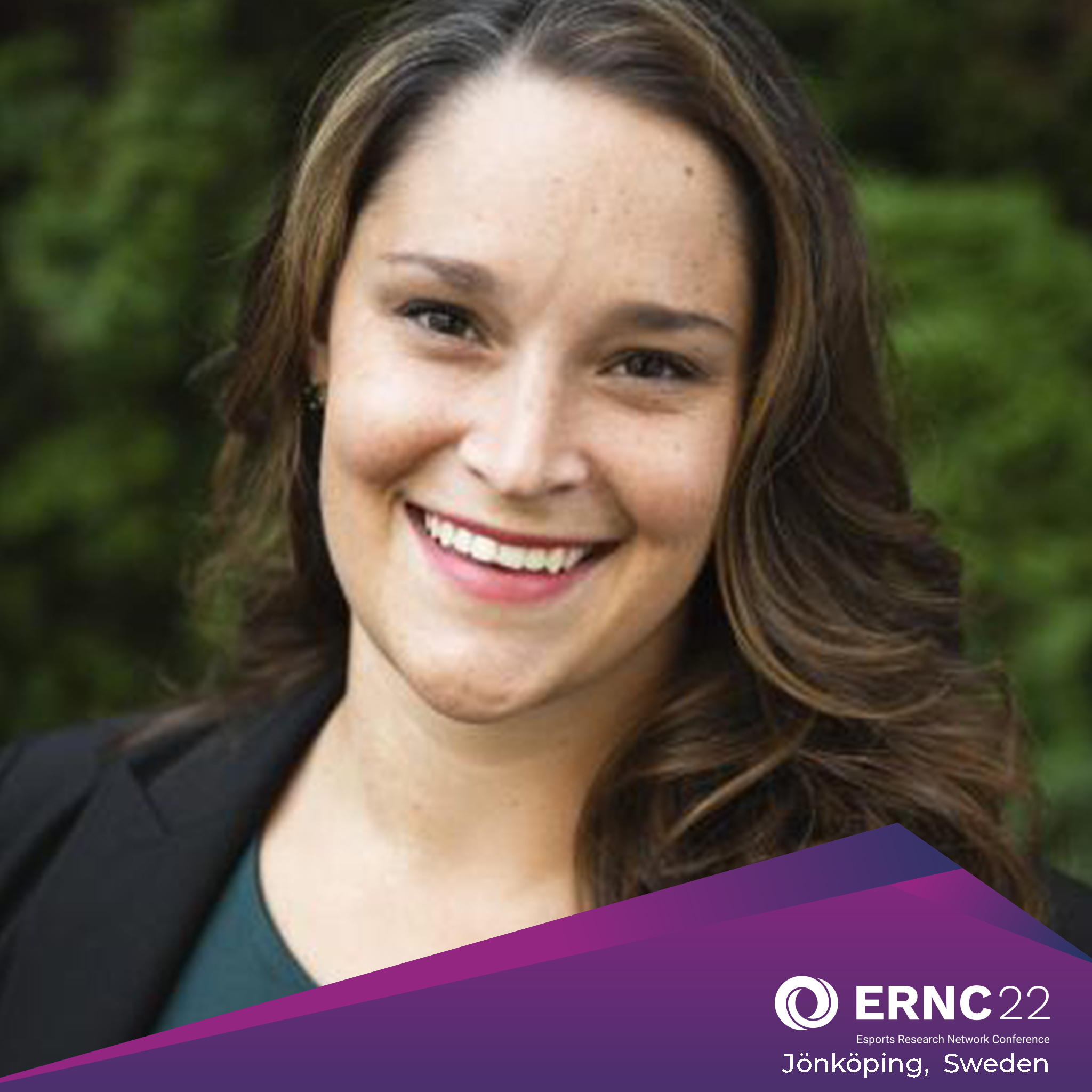
Dr. Amanda Cote
Assistant Professor of Media Studies/Game Studies at the University of Oregon
Amanda studies the industry and culture of games, especially around questions of identity, inclusion, and labor. Within esports, she’s interested in the growth and development of U.S. collegiate esports programs, particularly as pertains to her main research areas. In 2020 She published her book: Gaming Sexism: Gender and Identity in the Era of Casual Video Games
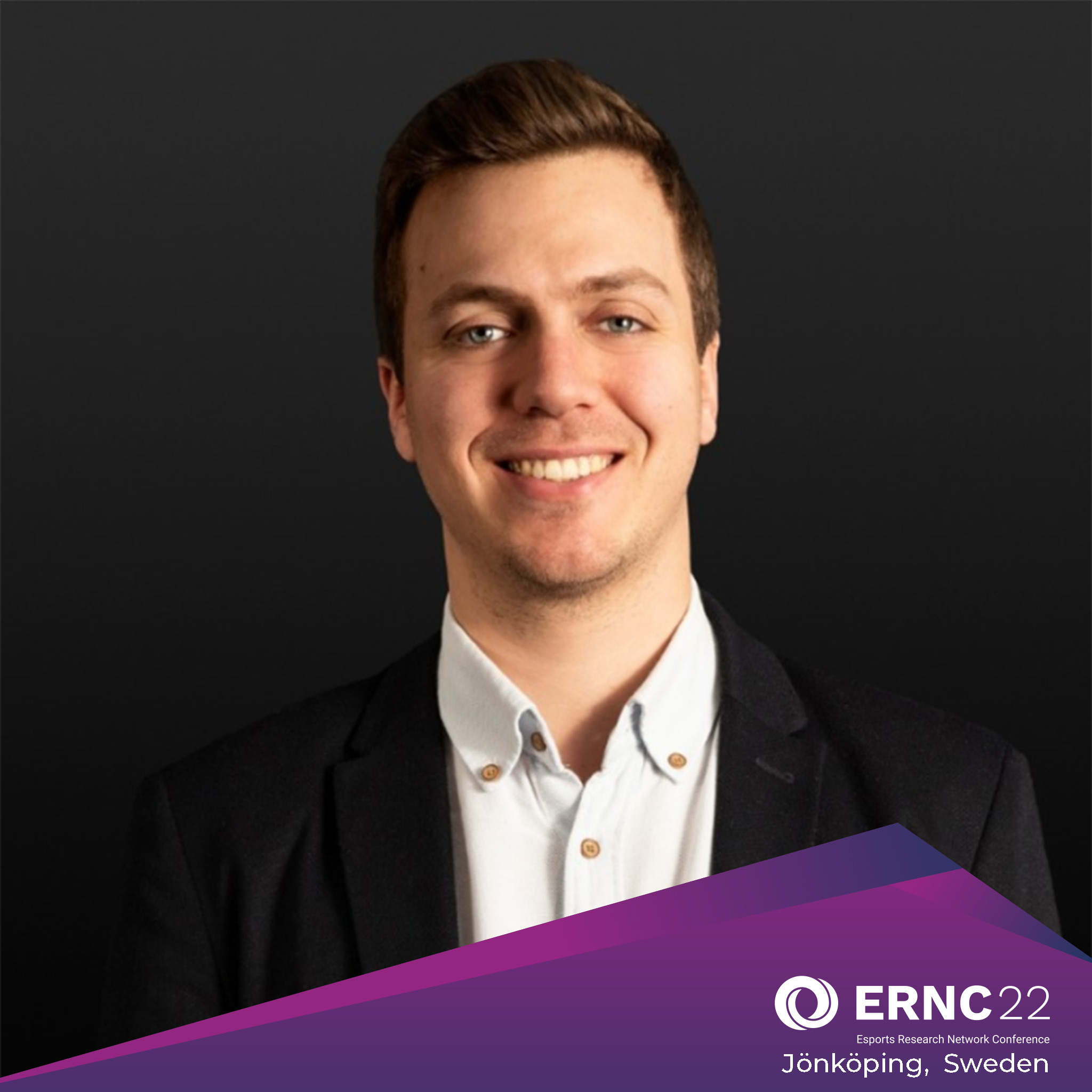
Patrik Jackiewicz
Senior Partnerships Manager at ChallengerMode
As Senior Partnerships Manager, Patrik leads ChallengerMode’s partnerships team which seeks to build the relationships within esports vast ecosystem that can ensure ChallengerMode to achieve their mission and make esports truly accessible for millions of gamers world-wide.
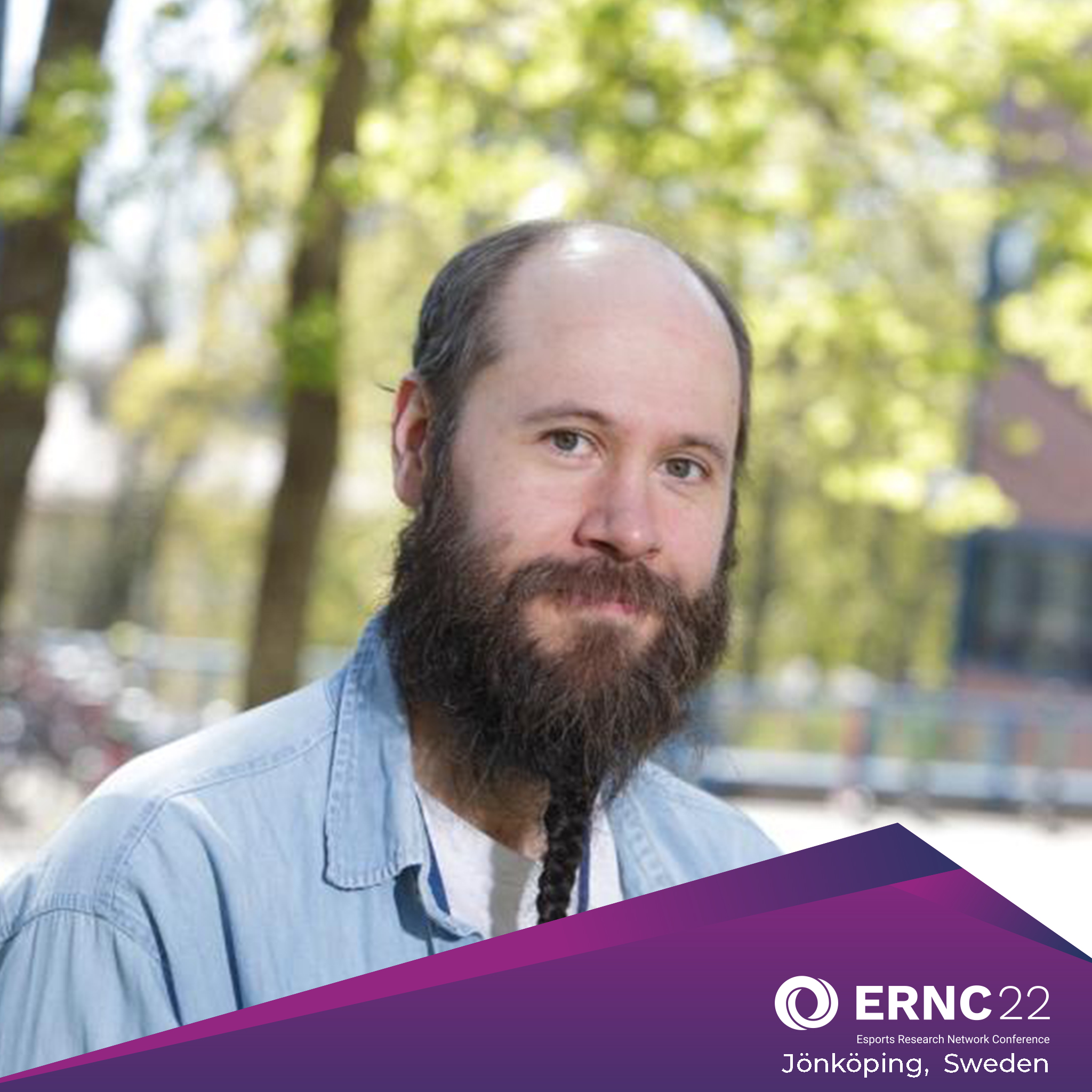
Dr. Veli-Matti Karhulahti
Senior Researcher at University of Jyväskylä, Finland
Veli-Matti is a senior researcher in University of Jyväskylä, carrying out interdisciplinary work across anthropology, design, game studies, health sciences, and psychology. He is interested in how play and technology interact with human development, and methodologically, how such questions can be studied to begin with. He currently runs the ERC StG project “Ontological Reconstruction of Gaming Disorder” (2022–2027).
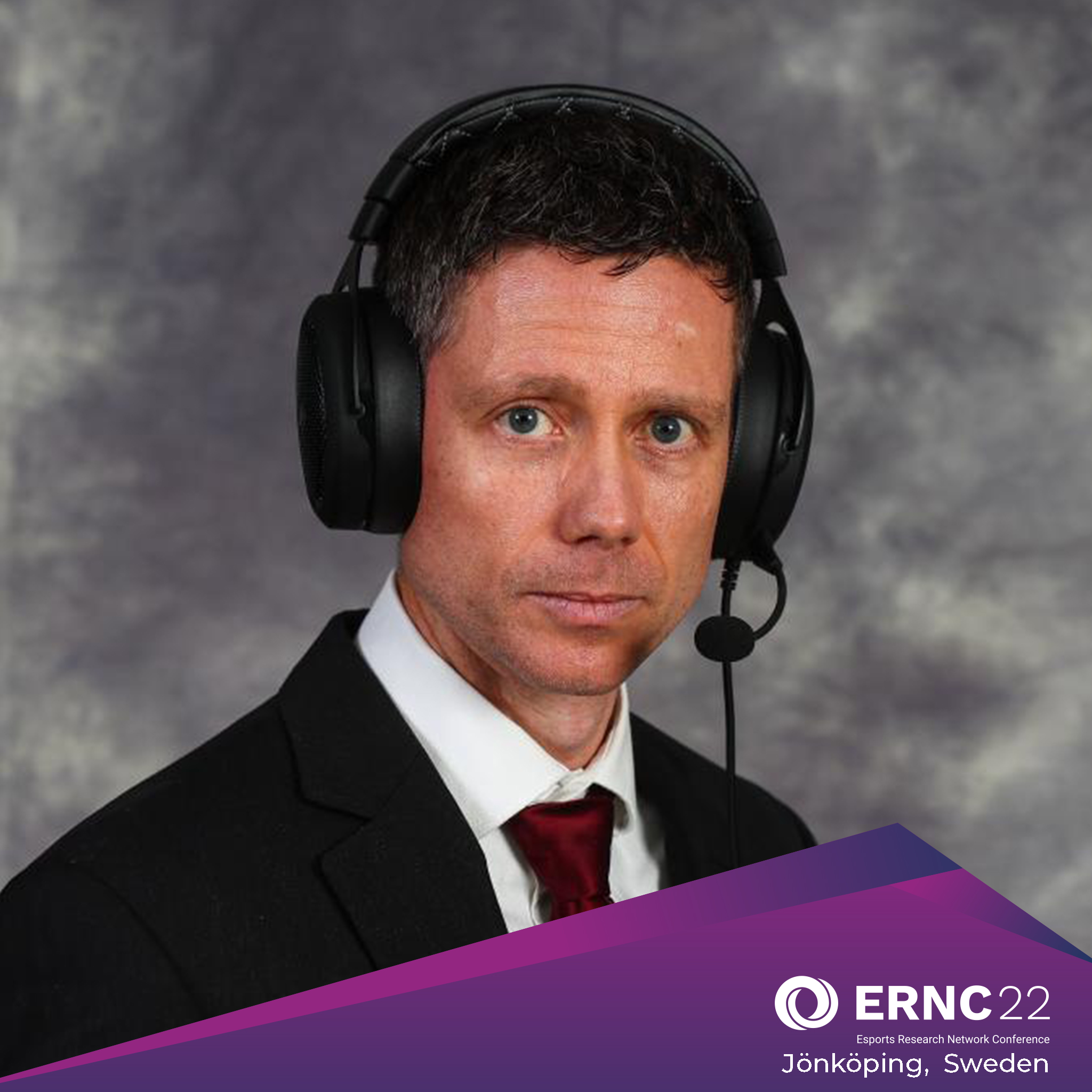
Dr. Seth Jenny
Researcher at Slippery Rock University, US
Seth teaches esports courses within the Department of Exercise Science and Athletic Training at Slippery Rock University of Pennsylvania (SRU), USA. Dr. Jenny has conducted research studies relating to video gaming or esports since 2011. He is SRU’s Esports Club faculty advisor, Associate Editor of the Journal of Electronic Gaming & Esports, Deputy Editor of the International Journal of Esports, and Board member of the Esports Research Network.
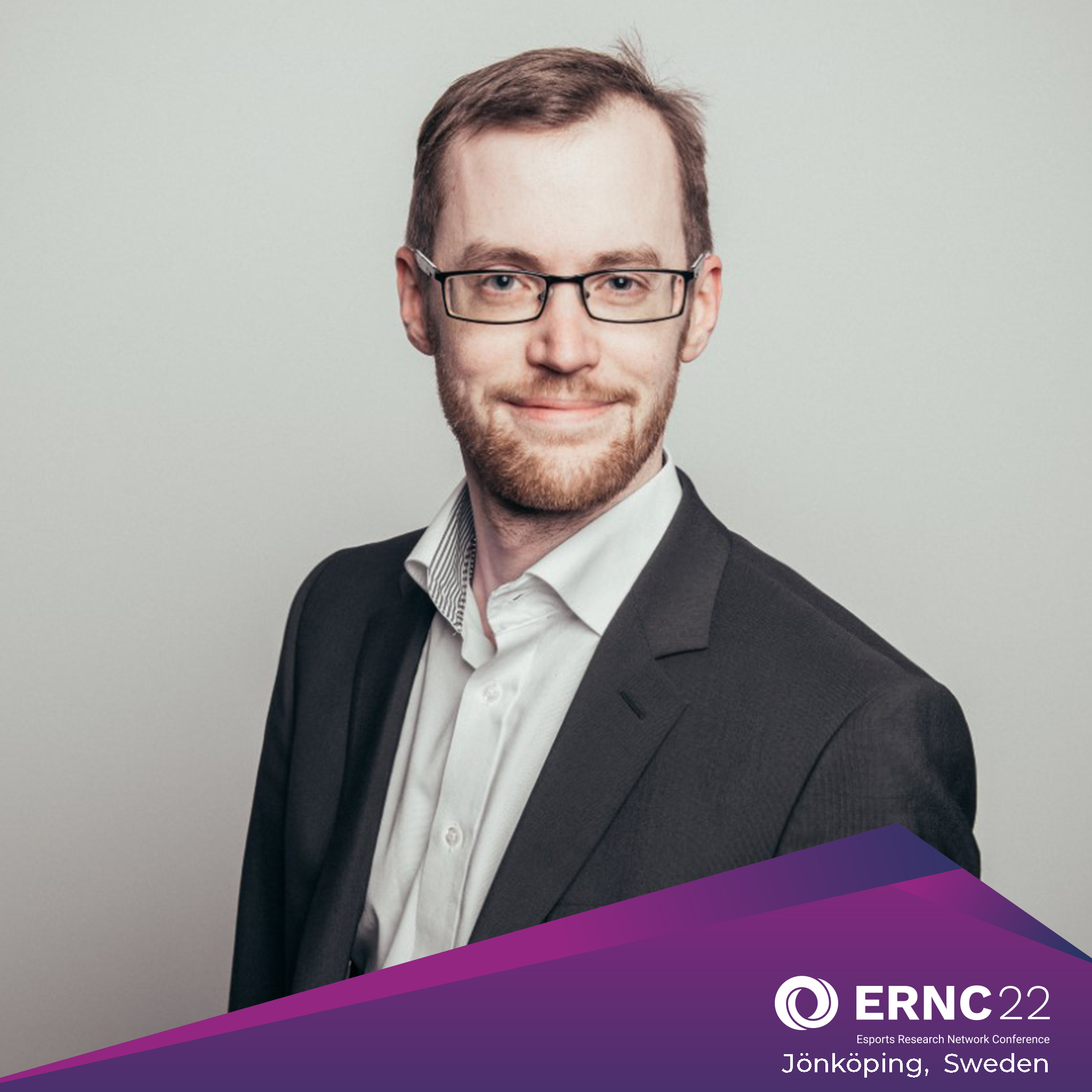
Dr. Tobias Scholz
Chair and Founder of Esports Research Network, Germany
Tobias is an Assistant Professor for Human Resource Management and Organizational Behavior at the University of Siegen in Germany. He has been involved in esports since 2001 and is the founding chairman of the Esports Research Network. His research covers digital HRM, esports, gamfication, big data, organizational technology studies, sustainability, and strategic management.
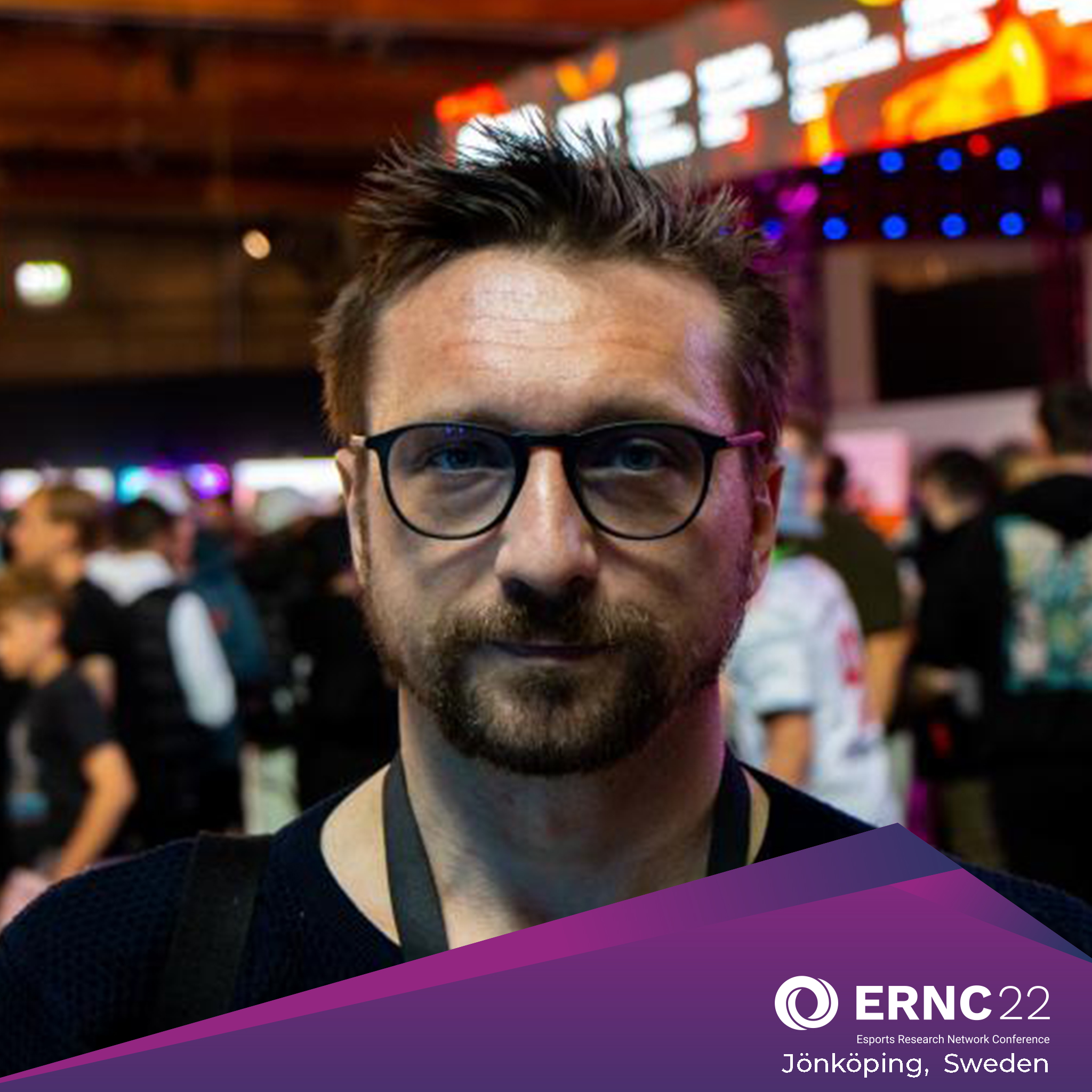
Dr. Brian McCauley
Researcher at MMTC and Vice Chair of Esports Research Network, Sweden
Through working in the City of DreamHack, Brian’s research focus has been on grassroots esports and the games industry in Sweden. As part of the Media, Management & Transformation Centre at Jönköping International Business School, he links industry and academia to develop partnerships that can ensure a sustainable esports future.
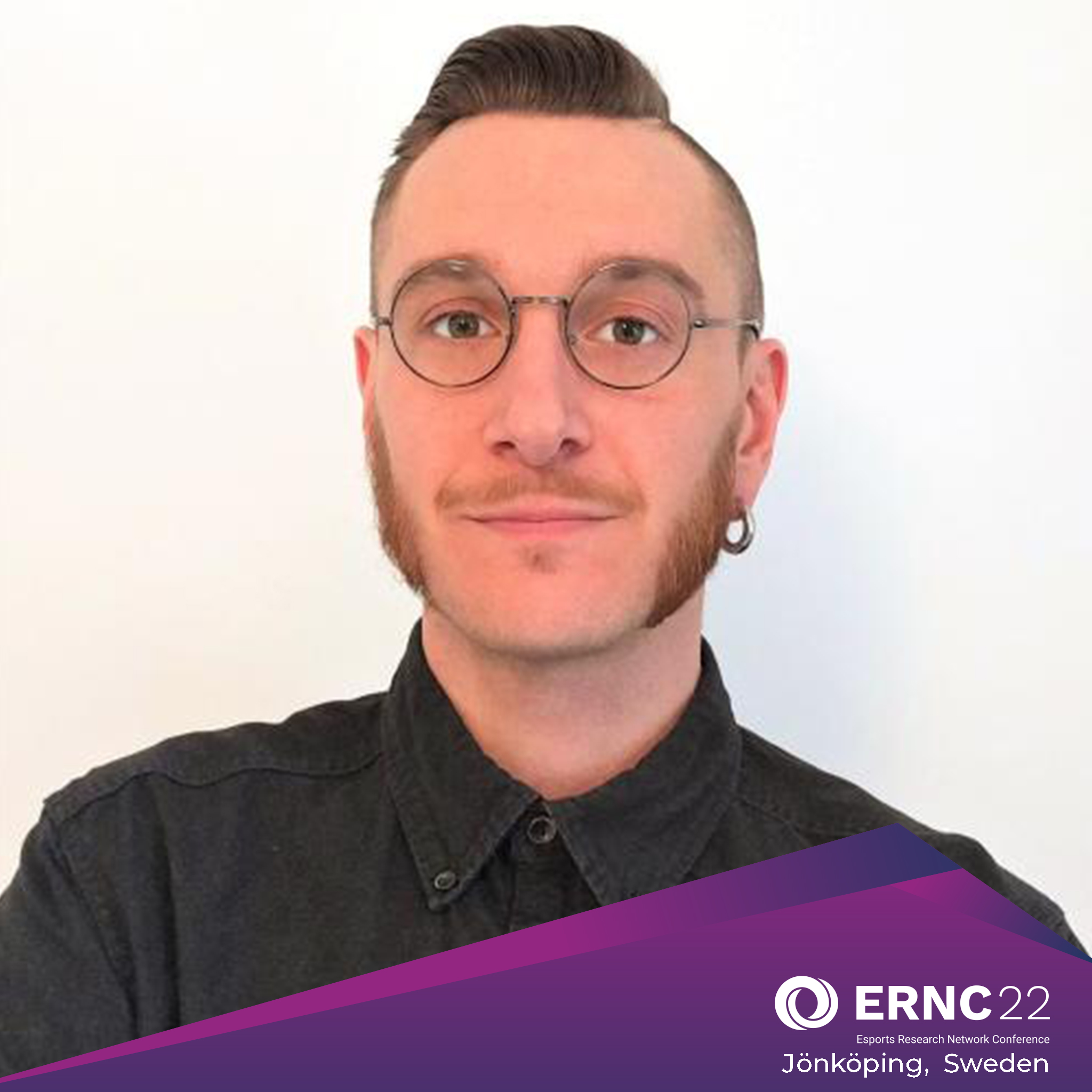
Dr. Nico Besombes
Associate Professor of Sociology of Sport, University of Paris, France
Nico is an Associate Professor with the Sports Faculty of Université Paris Cité, France. His research is focused on sports’ digital practices, and more specifically, on competitive gaming and esports. He is also the former Vice President of France Esports (the French national esports association) and has advised the Olympic Movement and many sports stakeholders on their esports strategies.
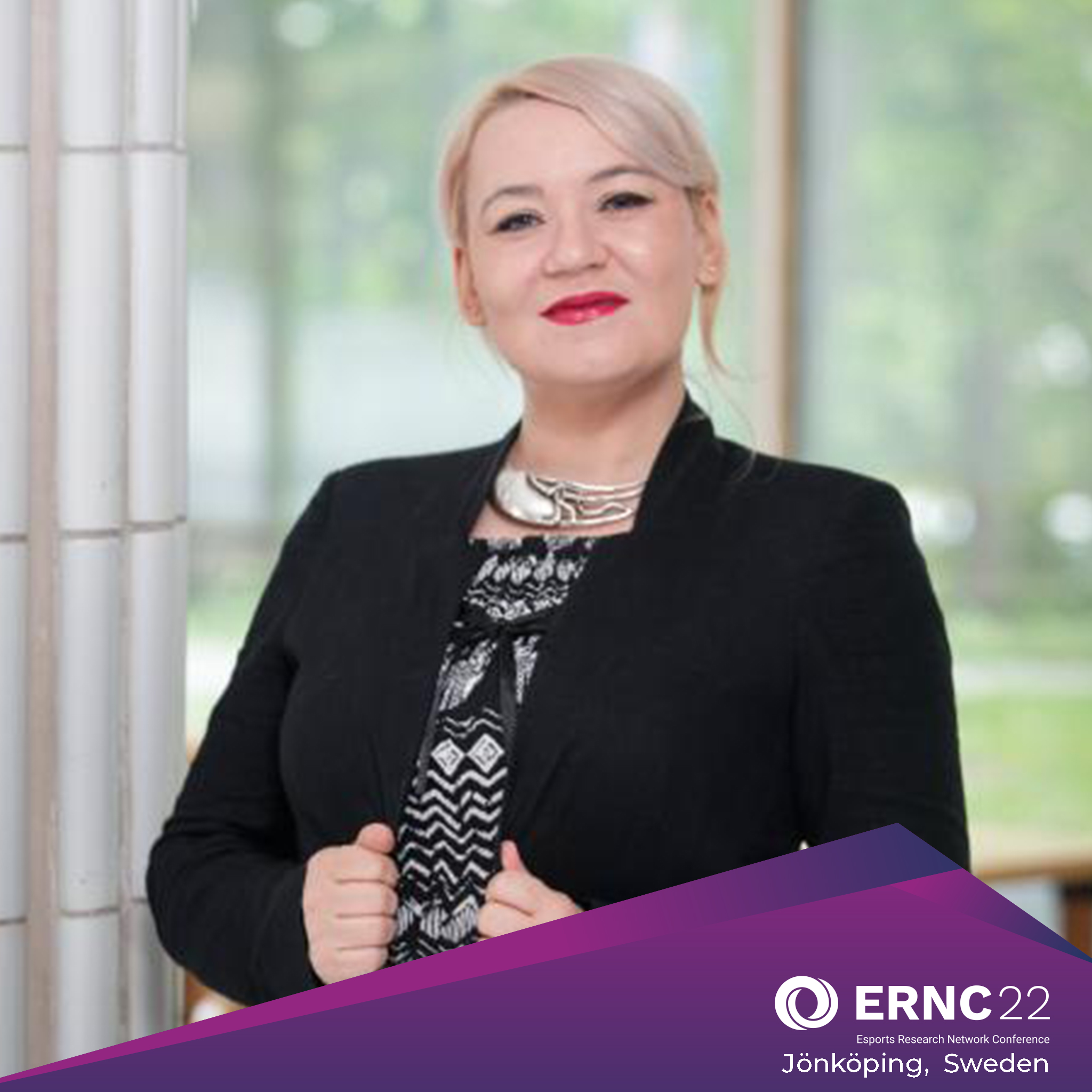
Dr. Maria Ruotsalainen
Postdoctoral researcher at University of Jyväskylä
Maria is a Postdoctoral researcher and research coordinator at the Centre of Excellence in Game Culture Studies. Her research focuses mainly on gender in competitive gaming, most recently examining gender and nationality in competitive Overwatch. Ruotsalainen has published in the journals Men & Masculinities, Game Studies, Games and Culture, and Television and New Media, as well as coedited the book “Modes of Esports engagement in Overwatch,” at Palgrave Macmillan.

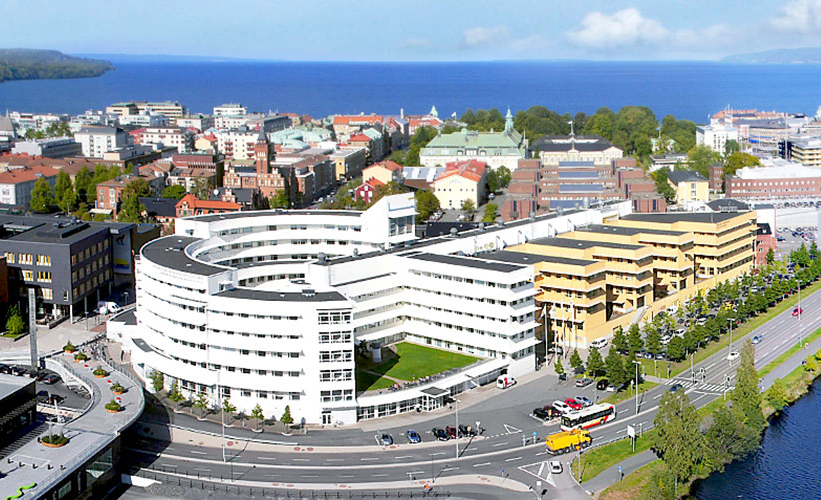
Important Dates
Held 21-23 November 2022 in Jönköping, Sweden followed by DreamHack Winter (24-27 Nov). Abstract Submissions Deadline: August 19th 2022
This year’s conference will be a live in-person event in one of esports most iconic locations, Jönköping the ‘City of DreamHack’. Key events and talks will be live streamed through Twitch while researchers can present and engage with fellow researchers at Jönköping University.
All attendees can stay after the conference to experience DreamHack Winter, the world’s biggest digital festival, where thousands of gamers and esports enthusiasts gather as a passionate community to create the true magic of esports.
There are more plans in the works and we will announce keynotes, sessions and extra events as they are confirmed so watch this space. So mark your diaries and start planning your submissions and we look forward to meeting you all in person after a long time stuck behind our screens.


30Important Dates
Held 21-23 November 2022 in Jönköping, Sweden followed by DreamHack Winter (24-27 Nov). Abstract Submissions Deadline: August 19th 2022
This year’s conference will be a live in-person event in one of esports most iconic locations, Jönköping the ‘City of DreamHack’. Key events and talks will be live streamed through Twitch while researchers can present and engage with fellow researchers at Jönköping University.
All attendees can stay after the conference to experience DreamHack Winter, the world’s biggest digital festival, where thousands of gamers and esports enthusiasts gather as a passionate community to create the true magic of esports.
There are more plans in the works and we will announce keynotes, sessions and extra events as they are confirmed so watch this space. So mark your diaries and start planning your submissions and we look forward to meeting you all in person after a long time stuck behind our screens.
Conference Chair
Brian McCauley
Jönköping University
Science Committee
- Leona Achtenhagen – Jönköping University
- Adele Berndt – Jönköping University
- Tobias M. Scholz – Jönköping University
- Juho Hamari – Tampere University
- Nicolas Besombes – University of Paris
- Maria Thörhönen – GoFore
- Joseph Macey – University of Turku
- Julia Hiltscher – ESL
- Stephanie Orme – Emmanuel College
- Seth E. Jenny – Slippery Rock University
- Craig McNulty – Queensland University of Technology
- Tom Brock – Manchester Met
- Amanda Cote – University of Oregon
- David Hedlund – St. John’s University
- Mark Campbell – University of Limerick
- Yaewon Jin – Yonsei University
- Will Partin – Google
Organizing Committee
- Phillipa Berglund – Jönköping University
- Prince Chacko Johnson – Jönköping University
- Joaquin Cestino – Jönköping University
- Daniel Alejandro de los Rios Pérez – Jönköping University
- Miralem Helmfalk – Linneues Univeristy
- Micheal Trotter – Umeå University
- Jonathan Kemper – Bonn Rhein-Sieg University
- Benedikt Staege – Staege Creations
- Oliver Leis – Leipzig University
- Maria Ruotsalainen – Jyväskylä
- Usva Friman – Tampere University
Main Topic
Sustainable Esports in the Digital Society
With sustainability being a paramount topic in today’s consumption-minded society, this conference will focus on esports sustainability, or the ability of esports to keep developing and maintain the opportunities it presents for a better society. Creating a sustainable esports ecosystem goes beyond the economic perspective but requires the inclusion of social and environmental aspects (Nyström et al. 2022). ERNC22 will be held in Jönköping, the ‘City of DreamHack’ one of the most influential cities in esports history and for grassroot esports (McCauley et al. 2020).
Your Title Goes Here
Your content goes here. Edit or remove this text inline or in the module Content settings. You can also style every aspect of this content in the module Design settings and even apply custom CSS to this text in the module Advanced settings.
Expand to read more
Esports is constantly evolving and changing. The impact of esports is far broader than just the categorization of it as competitive video games. Esports is truly digital and acts as a “total social fact” (Brock, 2017): it’s a cross-sectional phenomenon linking gaming, entertainment and media, culture and art, education, business and talent, diversity and inclusion, and sports. While esports has entered a phase of popularization and professionalization since the beginning of 2010 (Taylor, 2012), the question of its sustainability is becoming a major challenge (Scholz, 2020). Thereby, the esports ecosystem highlights the issues of sustainability for the digital society.
On the outset, it appears that esports’ growth will continue for a long time due to developments such as mobile esports. However, a closer look into distinct ecosystems shows that esports is not always sustainable. Especially from a business and social perspective, examples like Overwatch are alarming (Ruotsalainen et al., 2022). While the esports industry is more than just the top professional teams, if many of these organizations are unable to create a sustainable business model, research must dig deeper to uncover why. There is a connection between professional and grassroots esports, however, it could be fostered even further and utilize the existing value co-creation (Kunz et al., 2021). In recent years, sustainability in esports research has mostly centered around economic aspects, while social issues are currently rising to the forefront. Still, topics on environmental and social sustainability are often neglected.
Although this is similar in most digital ecosystems or platform economies, esports may highlight these issues even further (Partin, 2020). The games themselves are not the sole centerpiece in esports, rather the competitors playing esports. Thus, esports organizations should be people-driven. Furthermore, esports, like any digital environment, have the issue that their environmental impact is mostly invisible, but their footprint is quite extensive. Esports can only achieve a sustainable business model if they take care of their players through a holistic, nurturing supportive environment as well as tackle their environmental impact. Consequently, using esports as a testing field for sustainable ideas could be beneficial for digital society as esports has become more similar to the working world since Covid-19 and its enforced digitalization.
Main Topic
Sustainable Esports in the Digital Society
With sustainability being a paramount topic in today’s consumption-minded society, this conference will focus on esports sustainability, or the ability of esports to keep developing and maintain the opportunities it presents for a better society. Creating a sustainable esports ecosystem goes beyond the economic perspective but requires the inclusion of social and environmental aspects (Nyström et al. 2022). ERNC22 will be held in Jönköping, the ‘City of DreamHack’ one of the most influential cities in esports history and for grassroot esports (McCauley et al. 2020).
Your Title Goes Here
Your content goes here. Edit or remove this text inline or in the module Content settings. You can also style every aspect of this content in the module Design settings and even apply custom CSS to this text in the module Advanced settings.
Expand to read more
Esports is constantly evolving and changing. The impact of esports is far broader than just the categorization of it as competitive video games. Esports is truly digital and acts as a “total social fact” (Brock, 2017): it’s a cross-sectional phenomenon linking gaming, entertainment and media, culture and art, education, business and talent, diversity and inclusion, and sports. While esports has entered a phase of popularization and professionalization since the beginning of 2010 (Taylor, 2012), the question of its sustainability is becoming a major challenge (Scholz, 2020). Thereby, the esports ecosystem highlights the issues of sustainability for the digital society.
On the outset, it appears that esports’ growth will continue for a long time due to developments such as mobile esports. However, a closer look into distinct ecosystems shows that esports is not always sustainable. Especially from a business and social perspective, examples like Overwatch are alarming (Ruotsalainen et al., 2022). While the esports industry is more than just the top professional teams, if many of these organizations are unable to create a sustainable business model, research must dig deeper to uncover why. There is a connection between professional and grassroots esports, however, it could be fostered even further and utilize the existing value co-creation (Kunz et al., 2021). In recent years, sustainability in esports research has mostly centered around economic aspects, while social issues are currently rising to the forefront. Still, topics on environmental and social sustainability are often neglected.
Although this is similar in most digital ecosystems or platform economies, esports may highlight these issues even further (Partin, 2020). The games themselves are not the sole centerpiece in esports, rather the competitors playing esports. Thus, esports organizations should be people-driven. Furthermore, esports, like any digital environment, have the issue that their environmental impact is mostly invisible, but their footprint is quite extensive. Esports can only achieve a sustainable business model if they take care of their players through a holistic, nurturing supportive environment as well as tackle their environmental impact. Consequently, using esports as a testing field for sustainable ideas could be beneficial for digital society as esports has become more similar to the working world since Covid-19 and its enforced digitalization.
This allows all 3 to be closed upon loading the page.
Your content goes here. Edit or remove this text inline or in the module Content settings. You can also style every aspect of this content in the module Design settings and even apply custom CSS to this text in the module Advanced settings.
1. Economic sustainability
Economic sustainability is the effective use of resources concerning economic growth. Esports is driven by growth and this growth is characterized by emerging markets based on demographics, geographical, and cultural trends. This problem is not exclusive to esports, but also relatively typical for emerging businesses throughout the digital world.
Esports exists beyond just business, encompassing areas of sport, culture, media, education, and society. As such, there is a need to create an ecosystem that fosters sustainable growth from an economic perspective to ensure that broader social impacts can be maintained and managed strategically. How can esports become financially viable and still stay true to the grassroots origins?
Potential areas of interest include, but are not limited to:
- Sustainable business models
- Long-term strategic management
- Creating an authentic organizational culture
- Fostering innovation to adapt to the fast-pace environment
- Expanding to emerging economies with a sustainable growth model
- Making marketing sustainable in a fast-paces sponsoring environment
- Connecting with grassroots esports and traditional sports clubs
- Sharing business models in a platform-dominated ecosystem
- Balancing standardization (industry norms) and flexibility of esports
- Career development and entrepreneurial opportunities for esports players
- Duality of governance in creating long-term structures and staying flexible
- Dealing with IP and ownership in esports in a sustainable way
2. Social Sustainability
Social sustainability centers on equity, physical well-being, basic needs of individuals, quality of life, employment and working conditions. The social sustainability of esports has also emerged in recent years with increasing attention given to a range of important topics such as: health and well-being in esports, diversity and inclusion in esports, policy-making, governance and regulation, grassroots communities and education. These aspects of social sustainability are still emergent themes and require more practical applications and guidelines to further sustainability and inclusion in esports and the digital society.
The development of this digitized culture requires further research and dialogue between the academic entities and stakeholders of esports. The social values and culture inherent in esports have implications and applications for the wider world. Like the values provided to society by established sports, it is crucial to teach and educate social values in esports in an efficient way. For example, topics in this category might help answer: How can we create ‘GG for all’ in esports? How can we leverage esports to enhance modern society? How can we advocate for long-term athlete development in esports?
Potential areas of interest include, but are not limited to:
- Labour and employment conditions
- Health, illness, and injury
- Diversity and inclusion
- Mental health and burnout
- Prejudice, stigmas and inequalities (racism, sexism, homophobia, transphobia, ableism etc.)
- Discourse on ethics in esports
- Utilizing esports for training and education
- Performance optimization
3. Environmental sustainability
Environmental sustainability is about conserving and protecting the global ecosystem by transforming towards regenerative technologies and towards a circular economy. Given the global climate crisis, environmental sustainability is massively neglected in esports with few organizations addressing it. This dimension of sustainability will certainly become a prominent aspect of esports in the future as the understanding of the environmental effects of gaming and esports industries expand.
The young audience of esports is the demographic most impacted by climate changes and often highly conscious of the issue. As a result, it is imperative that research targeting impactful environmental-related actions is supported at this juncture. We welcome submissions that investigate the negative impact of gaming and esports on our world as well as research how we can use these mediums to affect change in perceptions, actions and impact on this vital topic.
Potential areas of interest include, but are not limited to:
- Identifying the environmental footprint
- Creating visibility on ecological impact of esports
- Educating the esports audience
- Creating transparent standards on esports environmental impact
- Fostering proactivity for environmental sustainability
- Ecological impact of esports arenas or events
- Implementing environmental impact in the esports ecosystem
- Ways to reduce energy, avoid waste and recycling in esports
- Transforming the esports ecosystem towards a circular economy
This allows all 3 to be closed upon loading the page.
Your content goes here. Edit or remove this text inline or in the module Content settings. You can also style every aspect of this content in the module Design settings and even apply custom CSS to this text in the module Advanced settings.
1. Economic sustainability
Economic sustainability is the effective use of resources concerning economic growth. Esports is driven by growth and this growth is characterized by emerging markets based on demographics, geographical, and cultural trends. This problem is not exclusive to esports, but also relatively typical for emerging businesses throughout the digital world.
Esports exists beyond just business, encompassing areas of sport, culture, media, education, and society. As such, there is a need to create an ecosystem that fosters sustainable growth from an economic perspective to ensure that broader social impacts can be maintained and managed strategically. How can esports become financially viable and still stay true to the grassroots origins?
Potential areas of interest include, but are not limited to:
- Sustainable business models
- Long-term strategic management
- Creating an authentic organizational culture
- Fostering innovation to adapt to the fast-pace environment
- Expanding to emerging economies with a sustainable growth model
- Making marketing sustainable in a fast-paces sponsoring environment
- Connecting with grassroots esports and traditional sports clubs
- Sharing business models in a platform-dominated ecosystem
- Balancing standardization (industry norms) and flexibility of esports
- Career development and entrepreneurial opportunities for esports players
- Duality of governance in creating long-term structures and staying flexible
- Dealing with IP and ownership in esports in a sustainable way
2. Social Sustainability
Social sustainability centers on equity, physical well-being, basic needs of individuals, quality of life, employment and working conditions. The social sustainability of esports has also emerged in recent years with increasing attention given to a range of important topics such as: health and well-being in esports, diversity and inclusion in esports, policy-making, governance and regulation, grassroots communities and education. These aspects of social sustainability are still emergent themes and require more practical applications and guidelines to further sustainability and inclusion in esports and the digital society.
The development of this digitized culture requires further research and dialogue between the academic entities and stakeholders of esports. The social values and culture inherent in esports have implications and applications for the wider world. Like the values provided to society by established sports, it is crucial to teach and educate social values in esports in an efficient way. For example, topics in this category might help answer: How can we create ‘GG for all’ in esports? How can we leverage esports to enhance modern society? How can we advocate for long-term athlete development in esports?
Potential areas of interest include, but are not limited to:
- Labour and employment conditions
- Health, illness, and injury
- Diversity and inclusion
- Mental health and burnout
- Prejudice, stigmas and inequalities (racism, sexism, homophobia, transphobia, ableism etc.)
- Discourse on ethics in esports
- Utilizing esports for training and education
- Performance optimization
3. Environmental sustainability
Environmental sustainability is about conserving and protecting the global ecosystem by transforming towards regenerative technologies and towards a circular economy. Given the global climate crisis, environmental sustainability is massively neglected in esports with few organizations addressing it. This dimension of sustainability will certainly become a prominent aspect of esports in the future as the understanding of the environmental effects of gaming and esports industries expand.
The young audience of esports is the demographic most impacted by climate changes and often highly conscious of the issue. As a result, it is imperative that research targeting impactful environmental-related actions is supported at this juncture. We welcome submissions that investigate the negative impact of gaming and esports on our world as well as research how we can use these mediums to affect change in perceptions, actions and impact on this vital topic.
Potential areas of interest include, but are not limited to:
- Identifying the environmental footprint
- Creating visibility on ecological impact of esports
- Educating the esports audience
- Creating transparent standards on esports environmental impact
- Fostering proactivity for environmental sustainability
- Ecological impact of esports arenas or events
- Implementing environmental impact in the esports ecosystem
- Ways to reduce energy, avoid waste and recycling in esports
- Transforming the esports ecosystem towards a circular economy
Submission Guidelines
Submission deadline is 19th August 2022. Abstracts submitted after the deadline will not be considered. Please see key dates related to the submission, review, and registration process. Abstract submissions should be made through the EasyChair system. Importantly, please note the following conference policy: maximum of 1 paper first-authored and 3 papers co-authored.
Abstracts not complying with the guidelines provided on this page will bounce back before entering the review process and authors will be asked to resubmit, if there is enough time.
Abstracts of 750 words maximum (title, author names, references not included) should propose or detail a research work structured around scientific literature and qualitative and/or quantitative empirical data. A review of problematized literature providing conceptually updated knowledge may also be submitted. The word limit for submissions is 1000 so that authors can include the relevant references. Please ensure that the abstract is limited to 750 and that the references are included.
Abstracts will be written in English, English being the language of expression of the conference, but participants from all countries are welcome.
All submissions will undergo a double-blinded peer-review process. Therefore the authors should remove any information that could give an indication of authorship.
Please submit your abstract in PDF-format.
Abstracts reflecting current or proposed research should be proposed according to the following format. Proposals referring to specific approaches (question reviews, inductive work, conceptual work etc.) may deviate from this framework, which is only intended to frame classic communication proposals.
- Theoretical Background and Literature Review
- Research Questions or Objectives
- Method or Proposed Method
- Findings
There are various types of abstracts possible: Completed Research, Work-in-Progress, Symposium, Workshop. One author must attend the conference in order to present. Accepted works will be grouped in sessions for presentation and discussions appropriate to the theme and topic of their work. PhD students as first authors are able to indicate this status if they wish to ensure that they are grouped with experienced researchers on their topic to maximise the benefits of discussions.
Accepted works
The abstract of 750 words maximum should include text only (i.e. pictures, figures and tables are excluded) and be written in Times New Roman text size 11, justified, single-spaced. APA referencing Style.
Contact for conference: board@esportsresearch.net
Fees
Full time university employed academics 250 euros Independent scholars and PhD students 100 euros. Conference attending fees will incliude a guest pass to attend DreamHack Winter.


